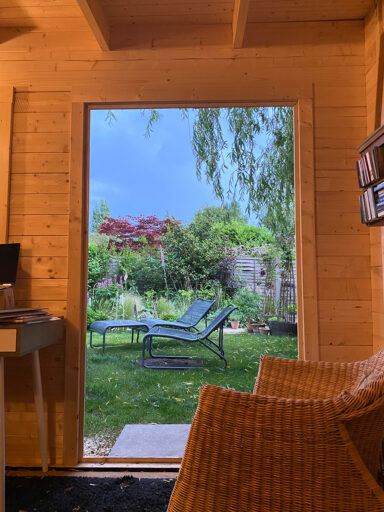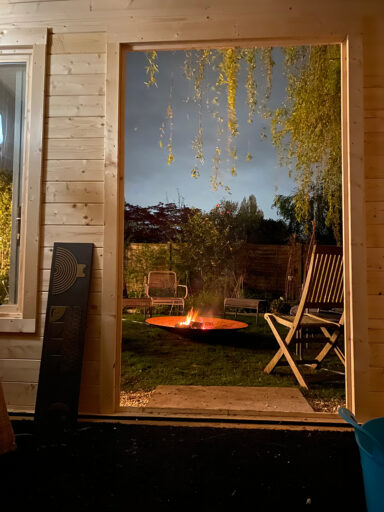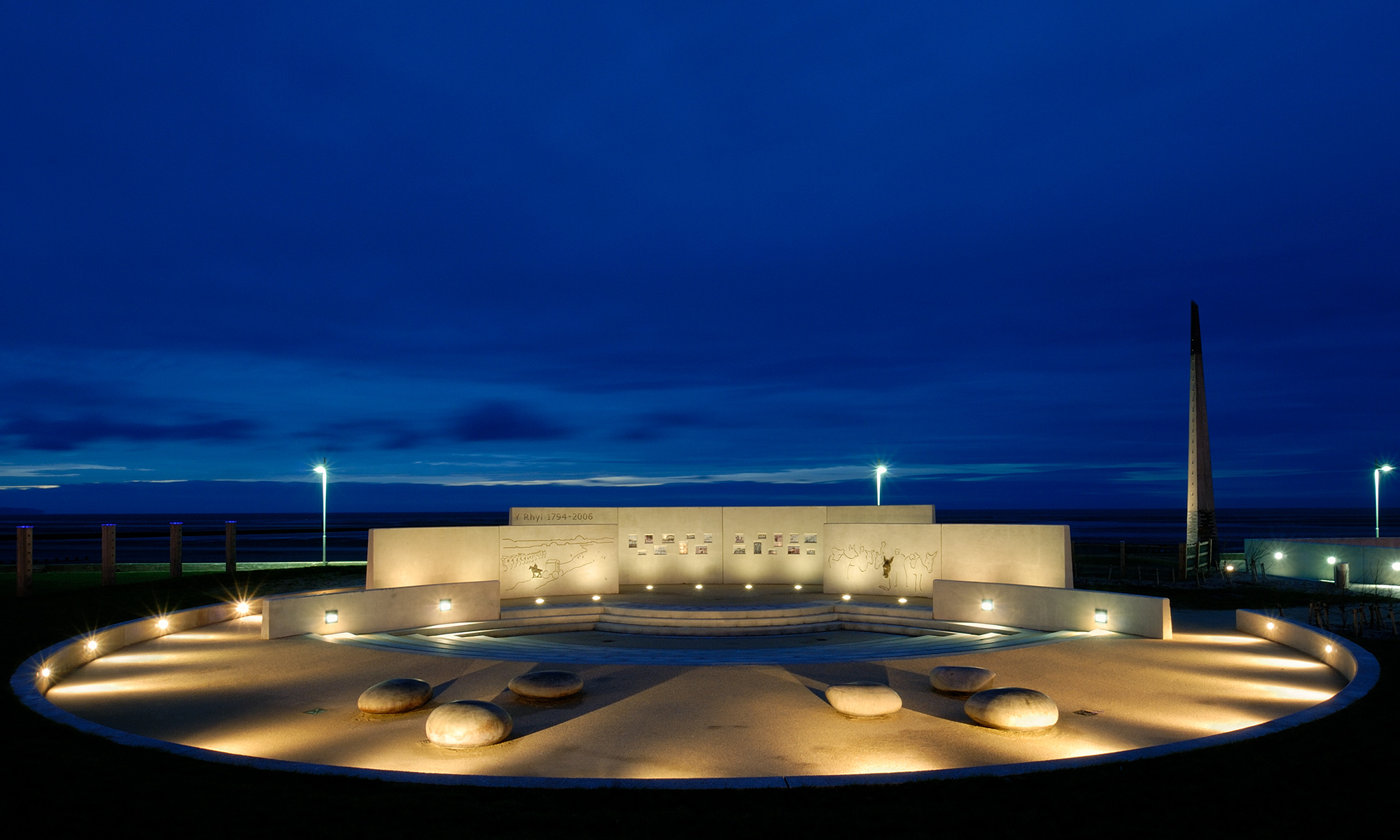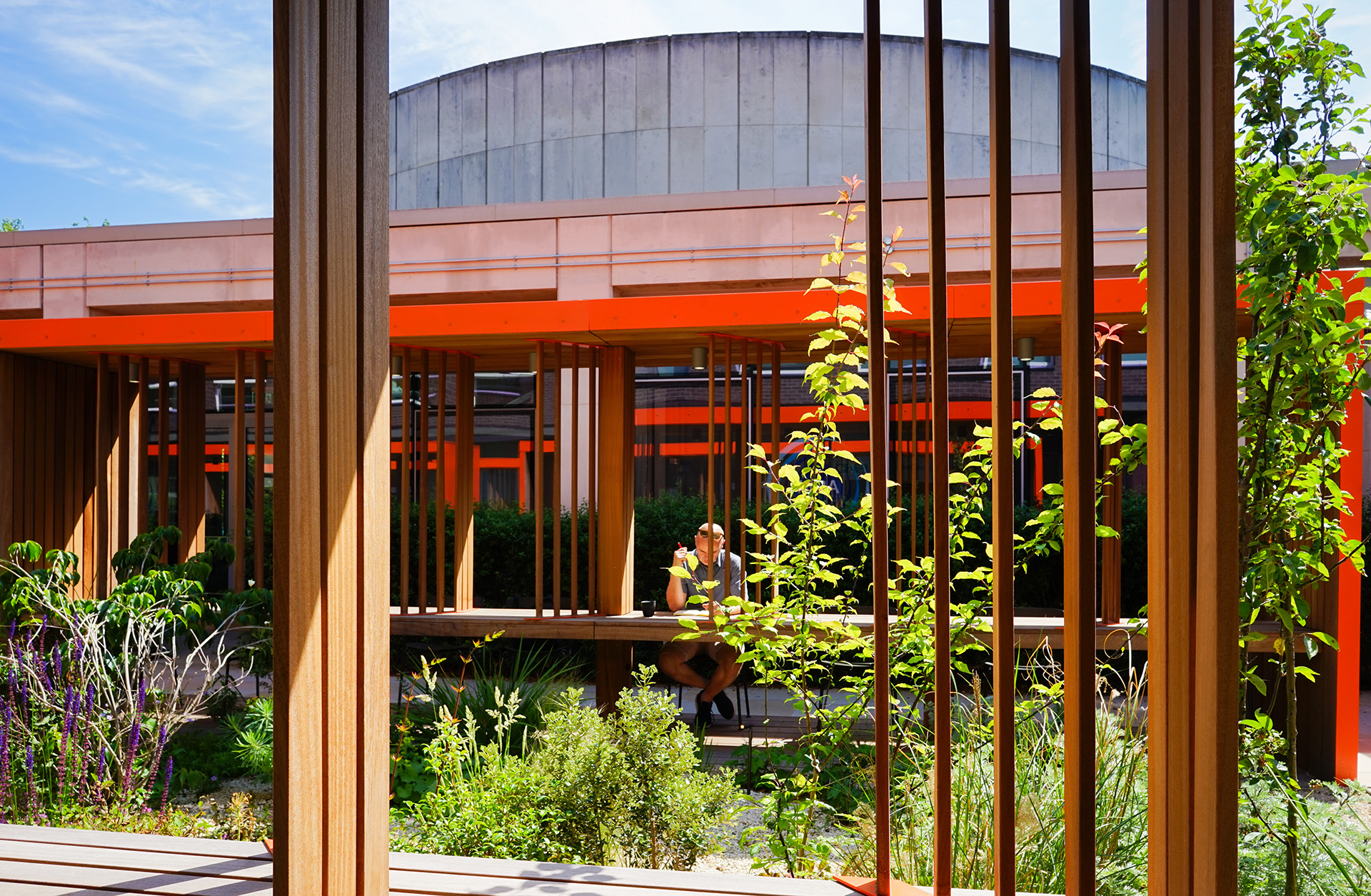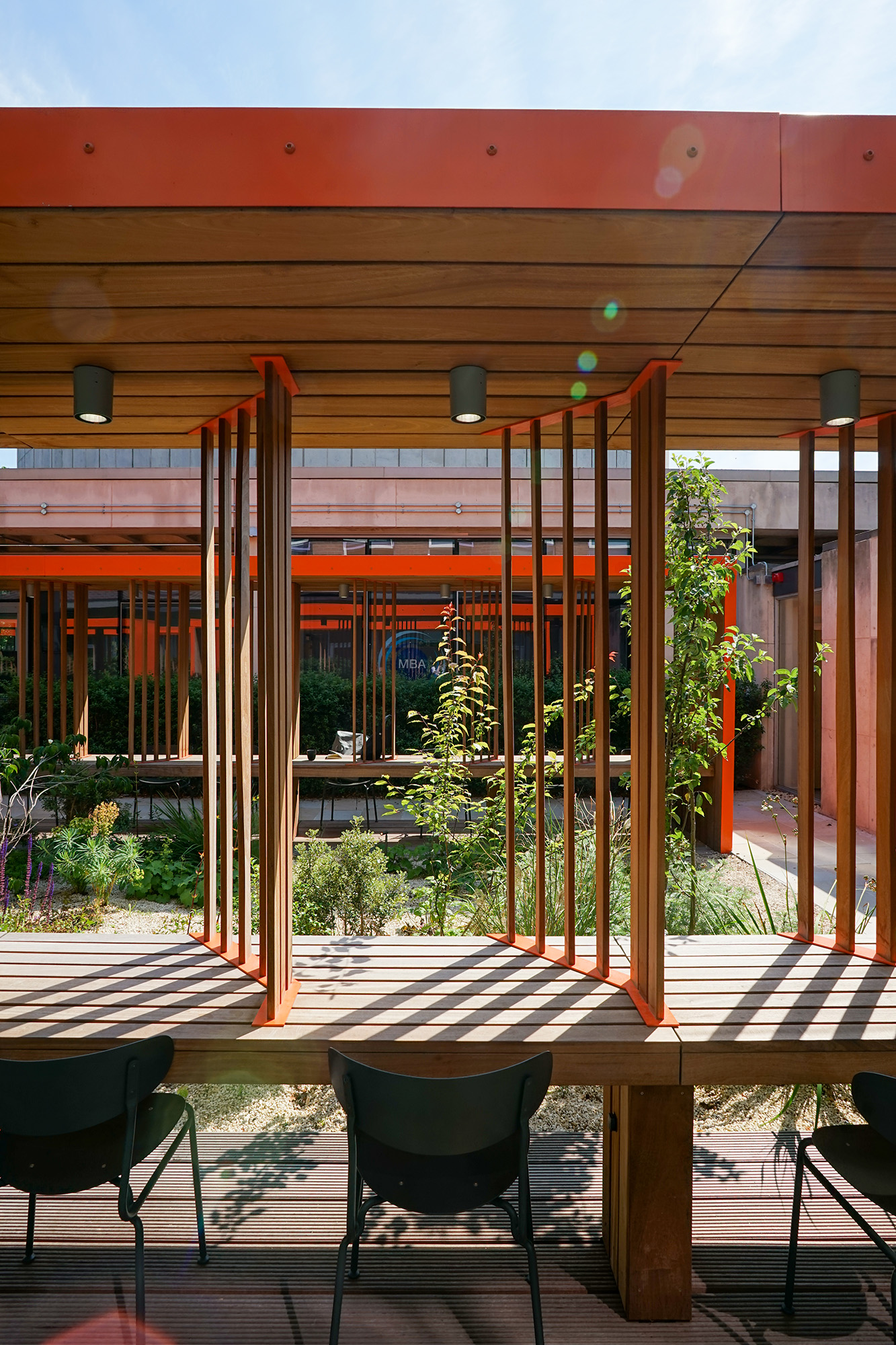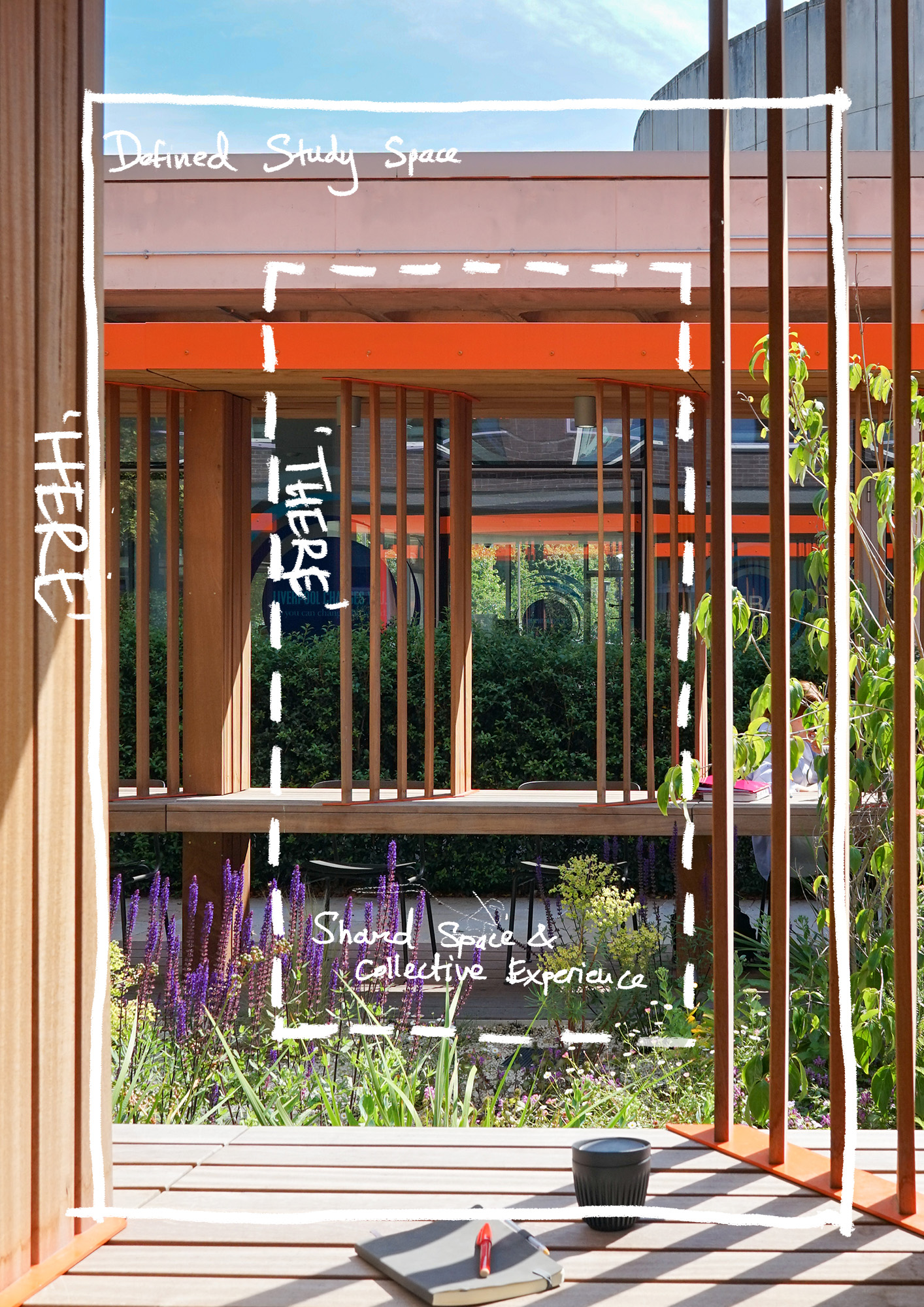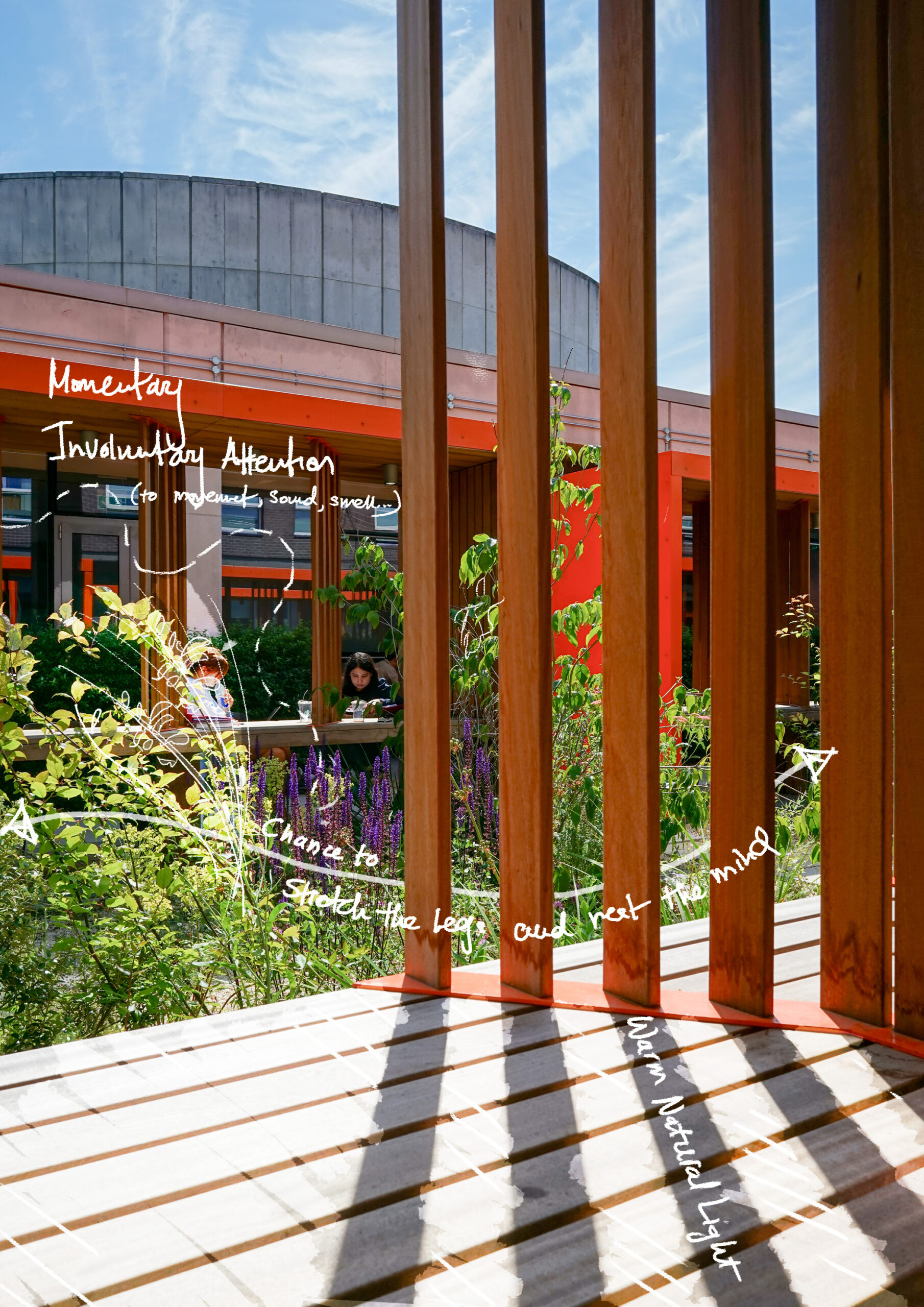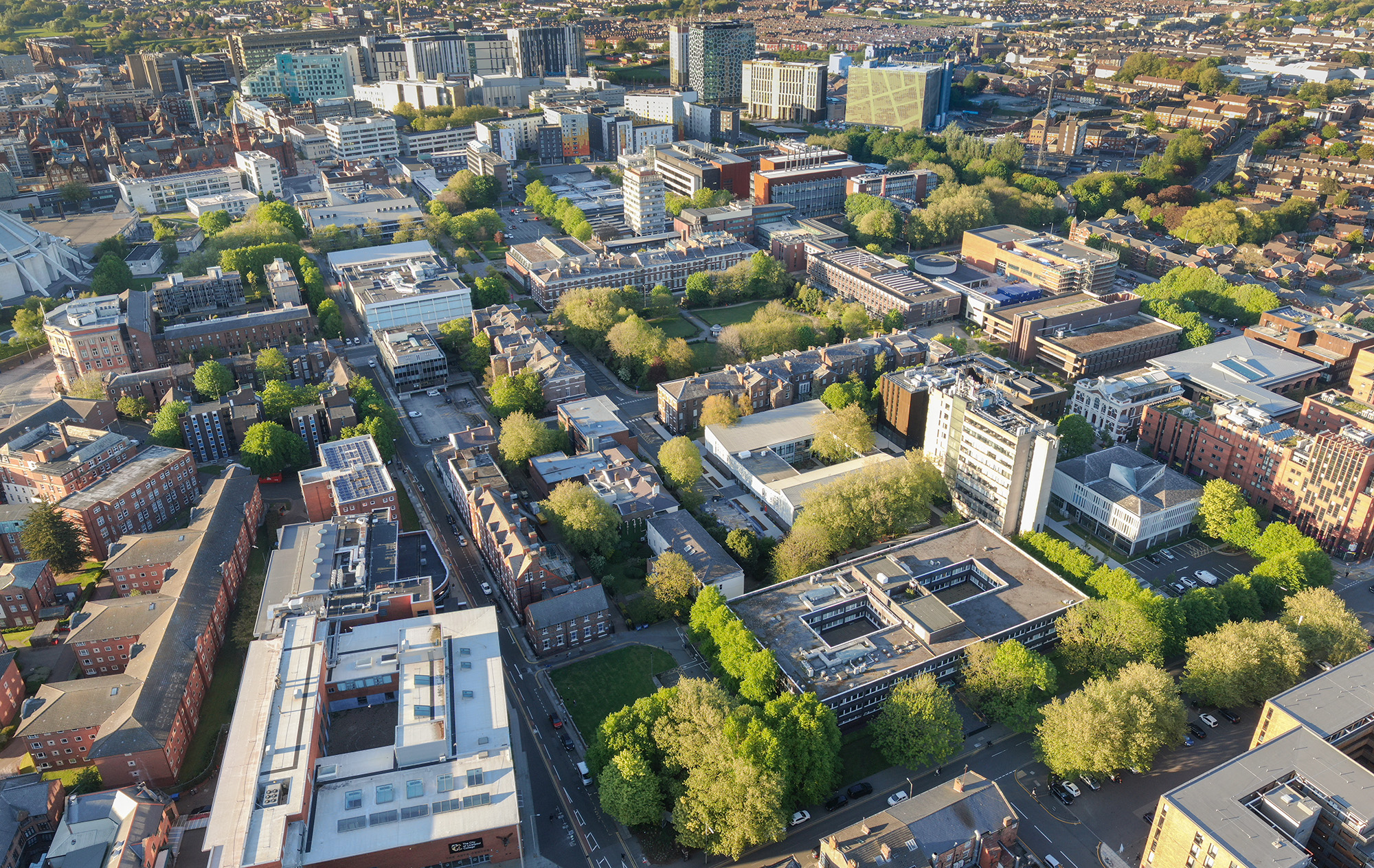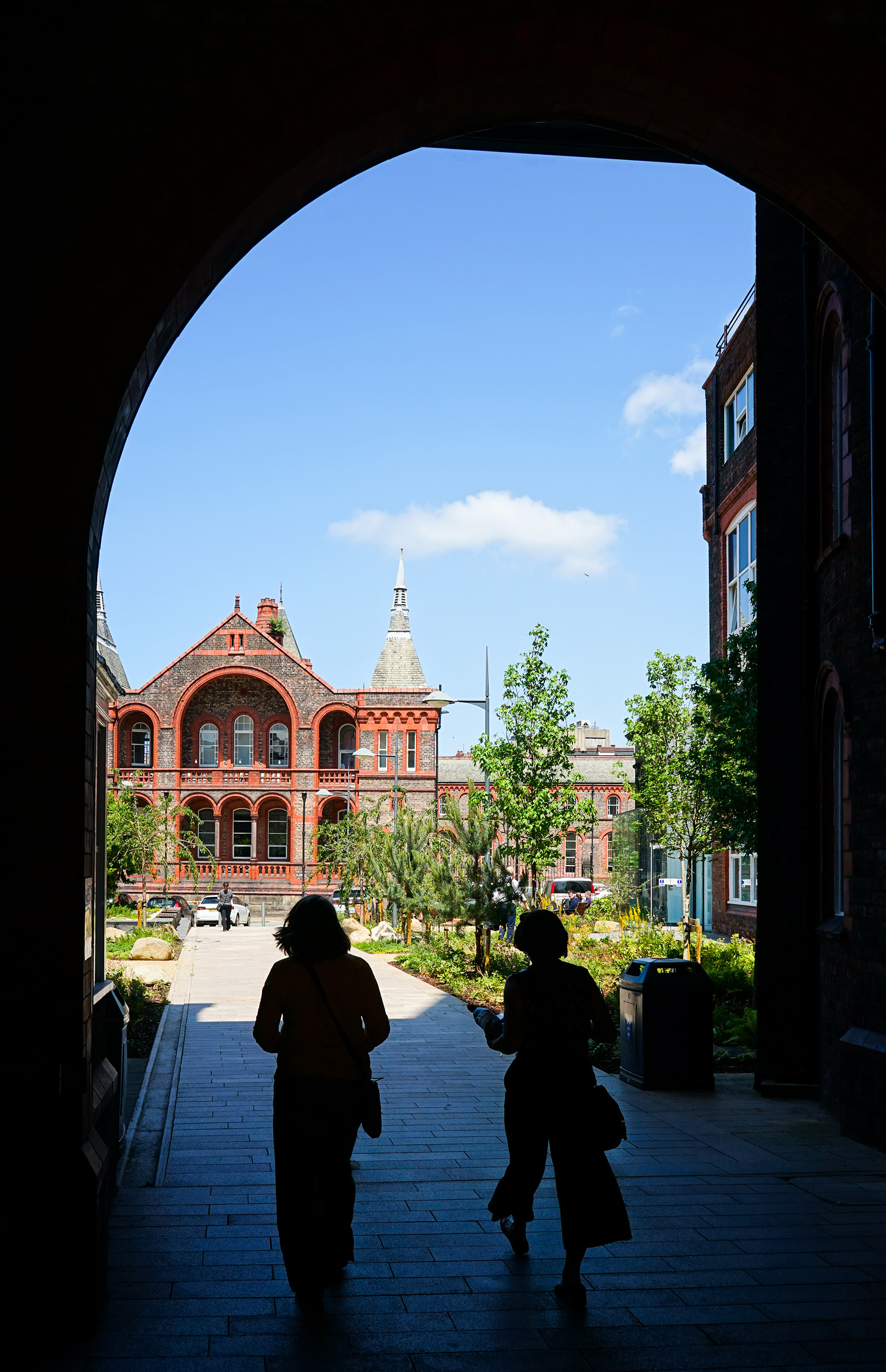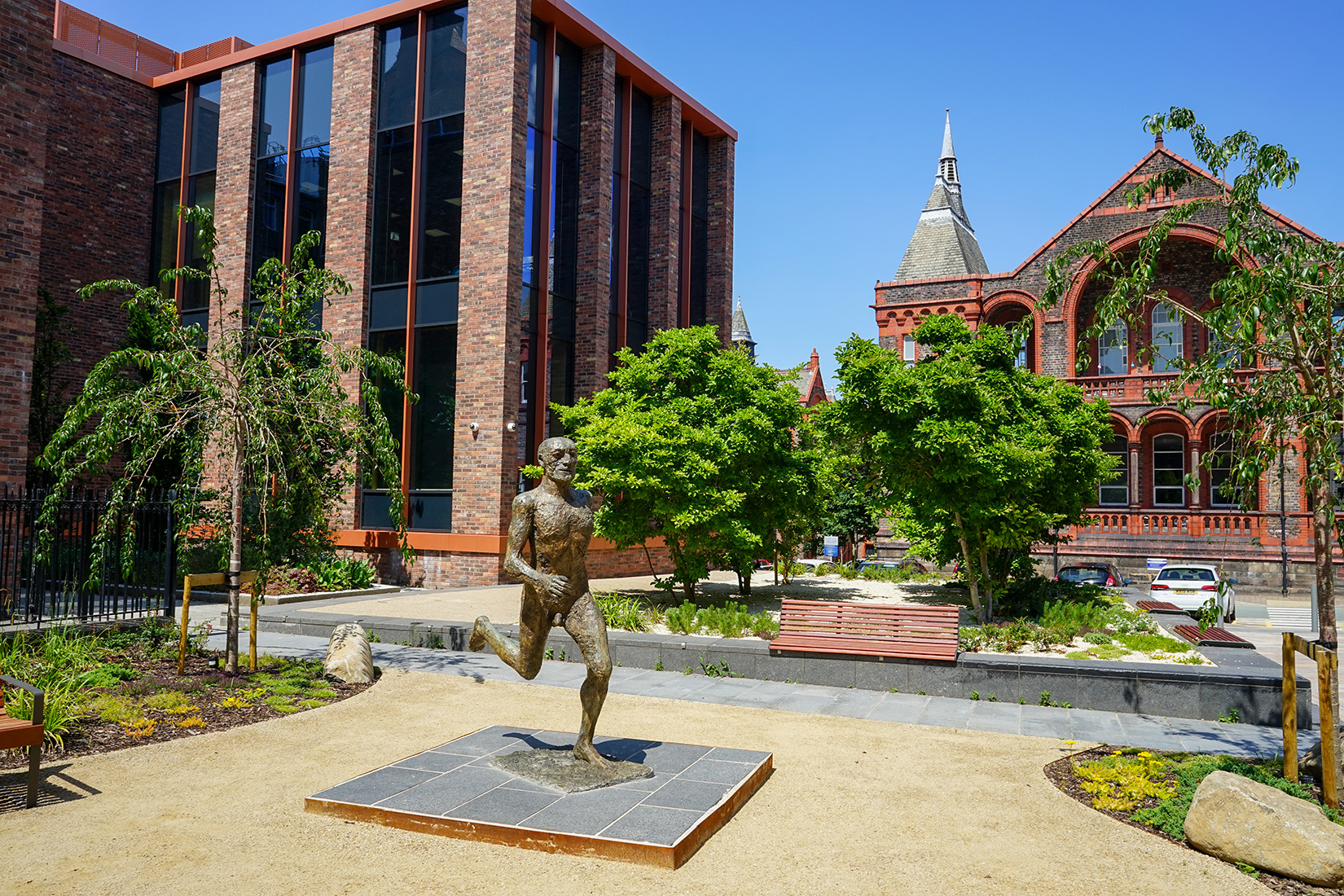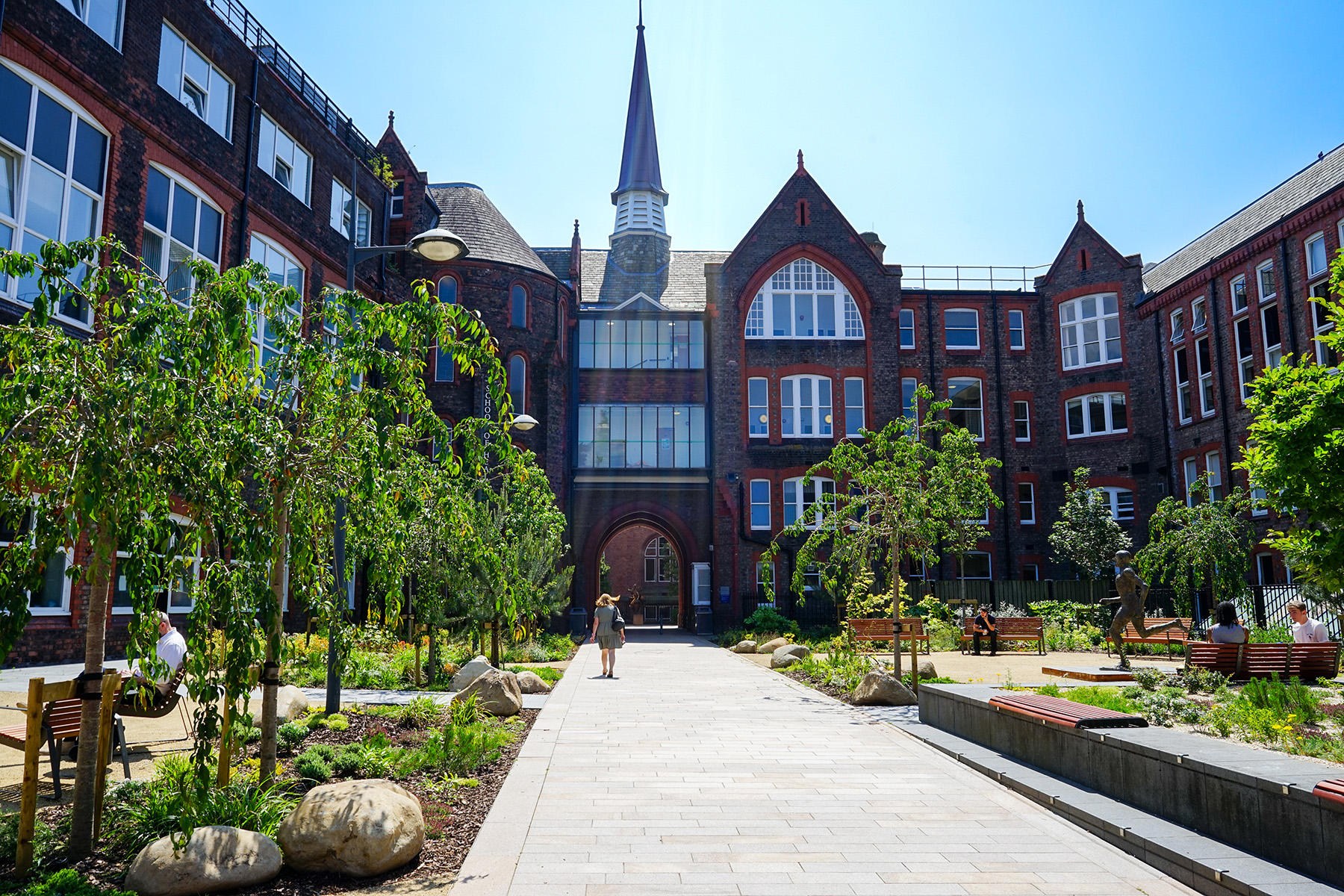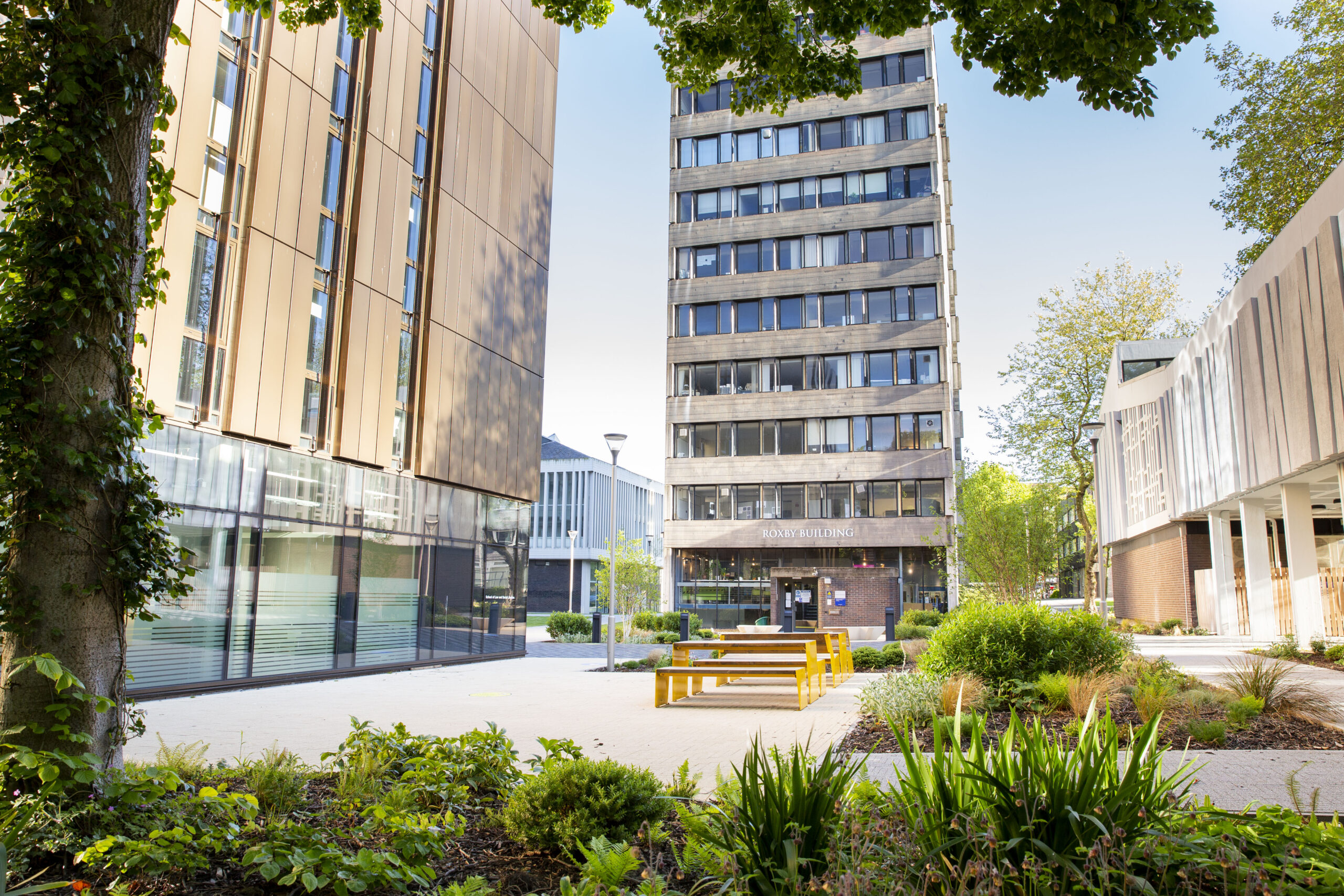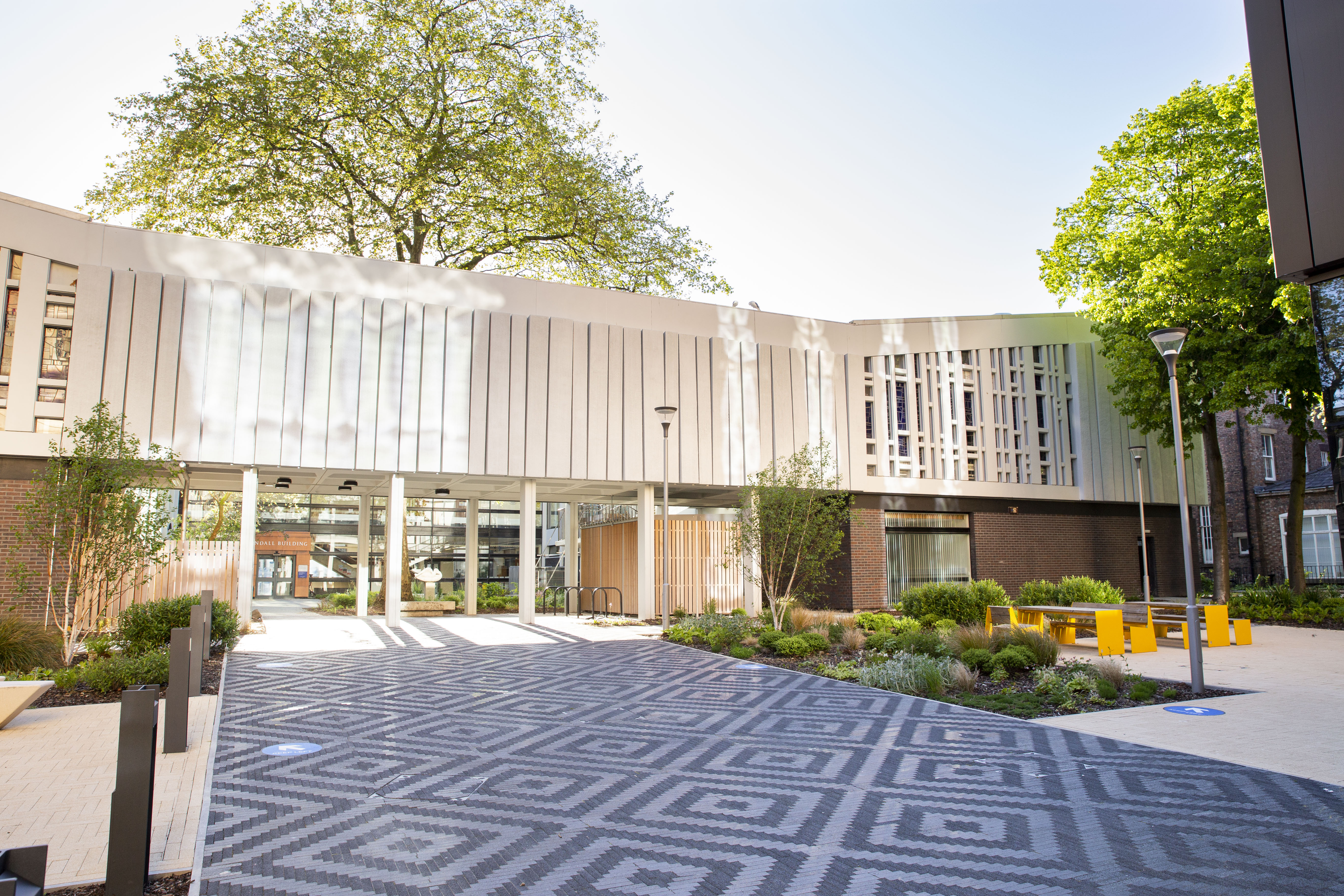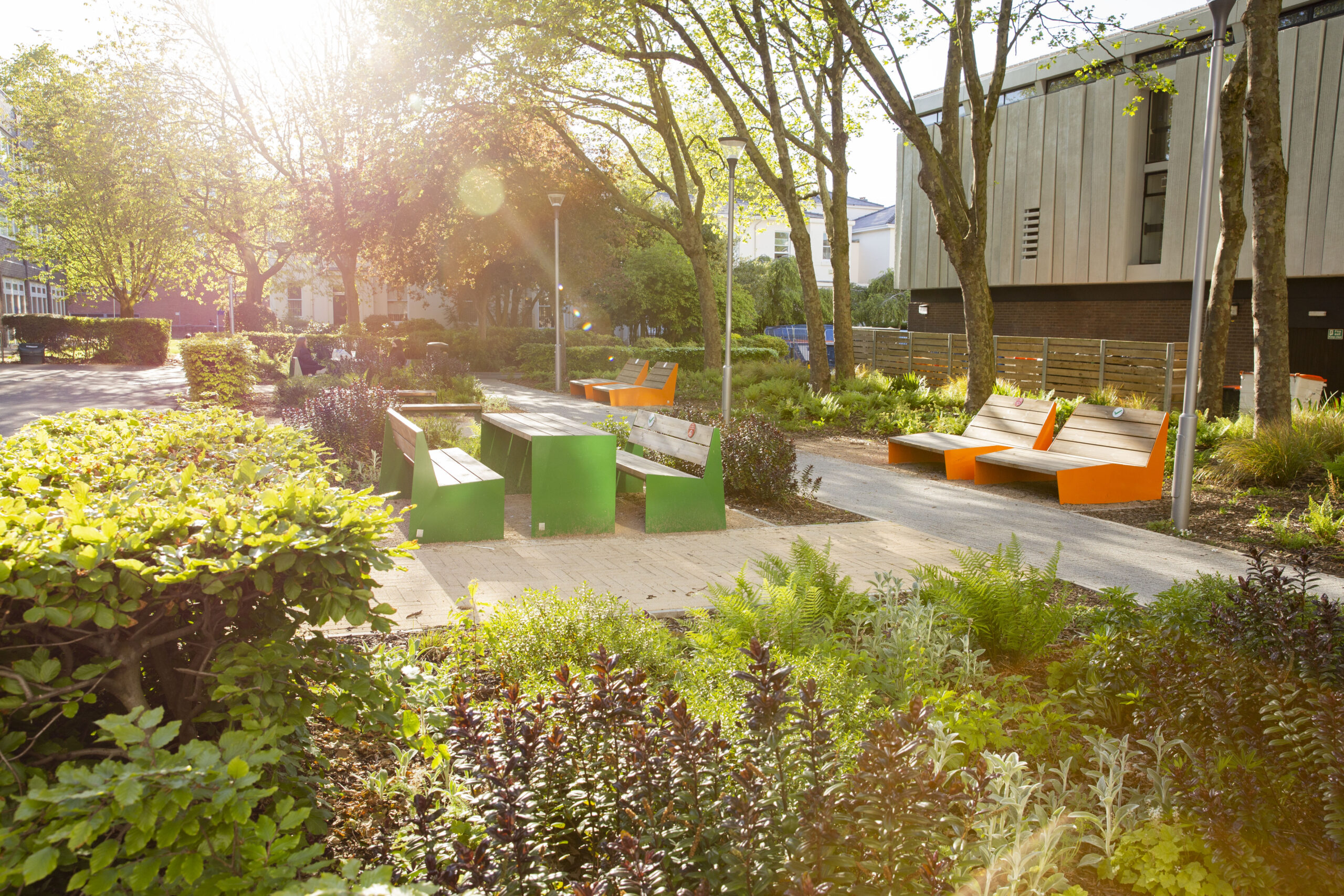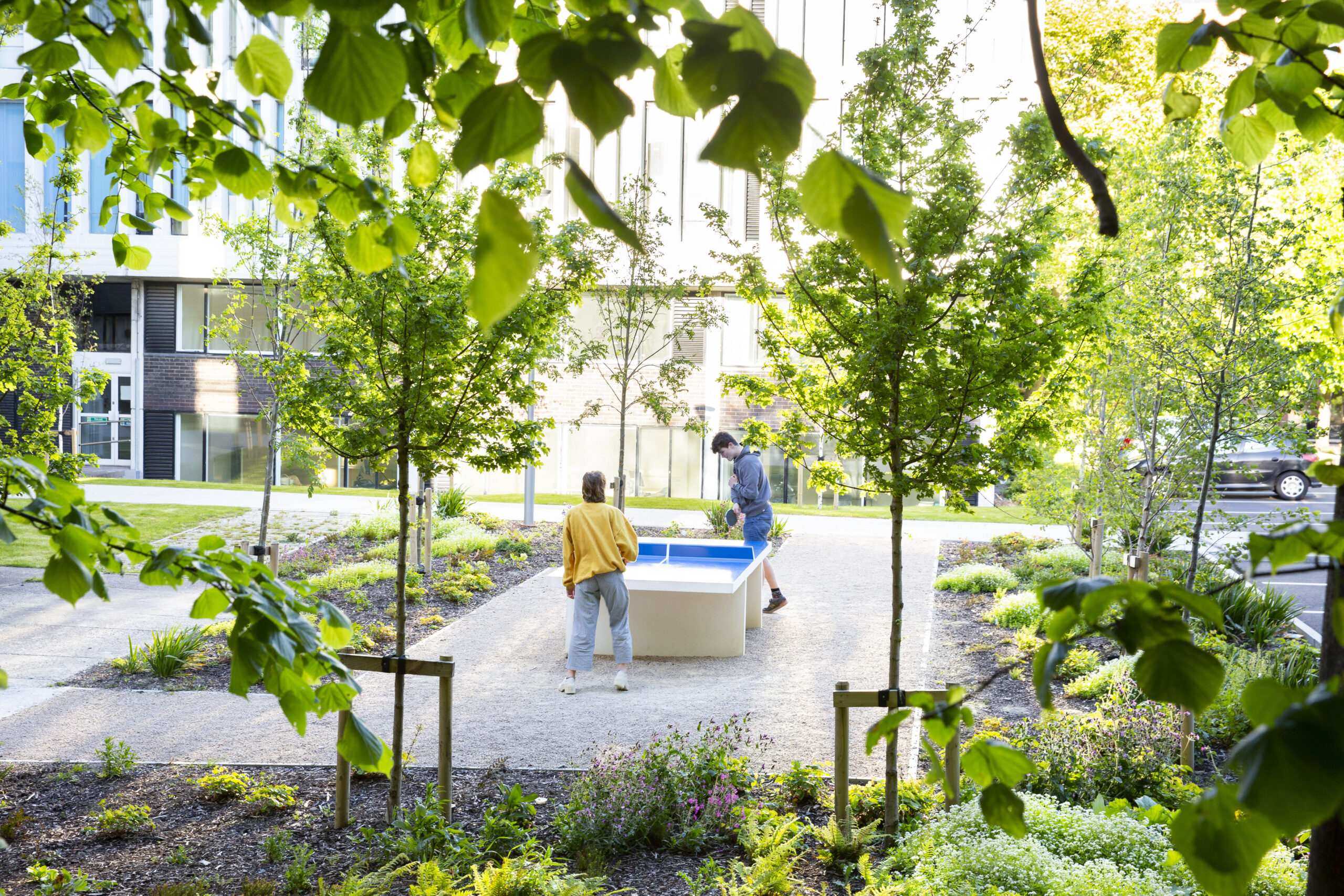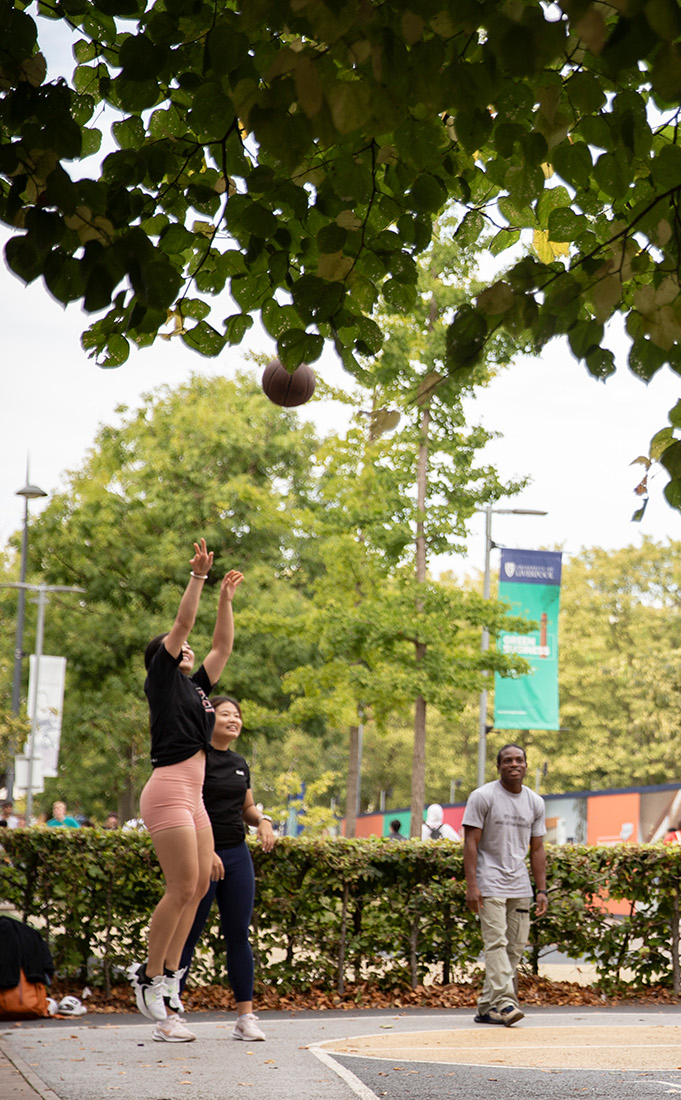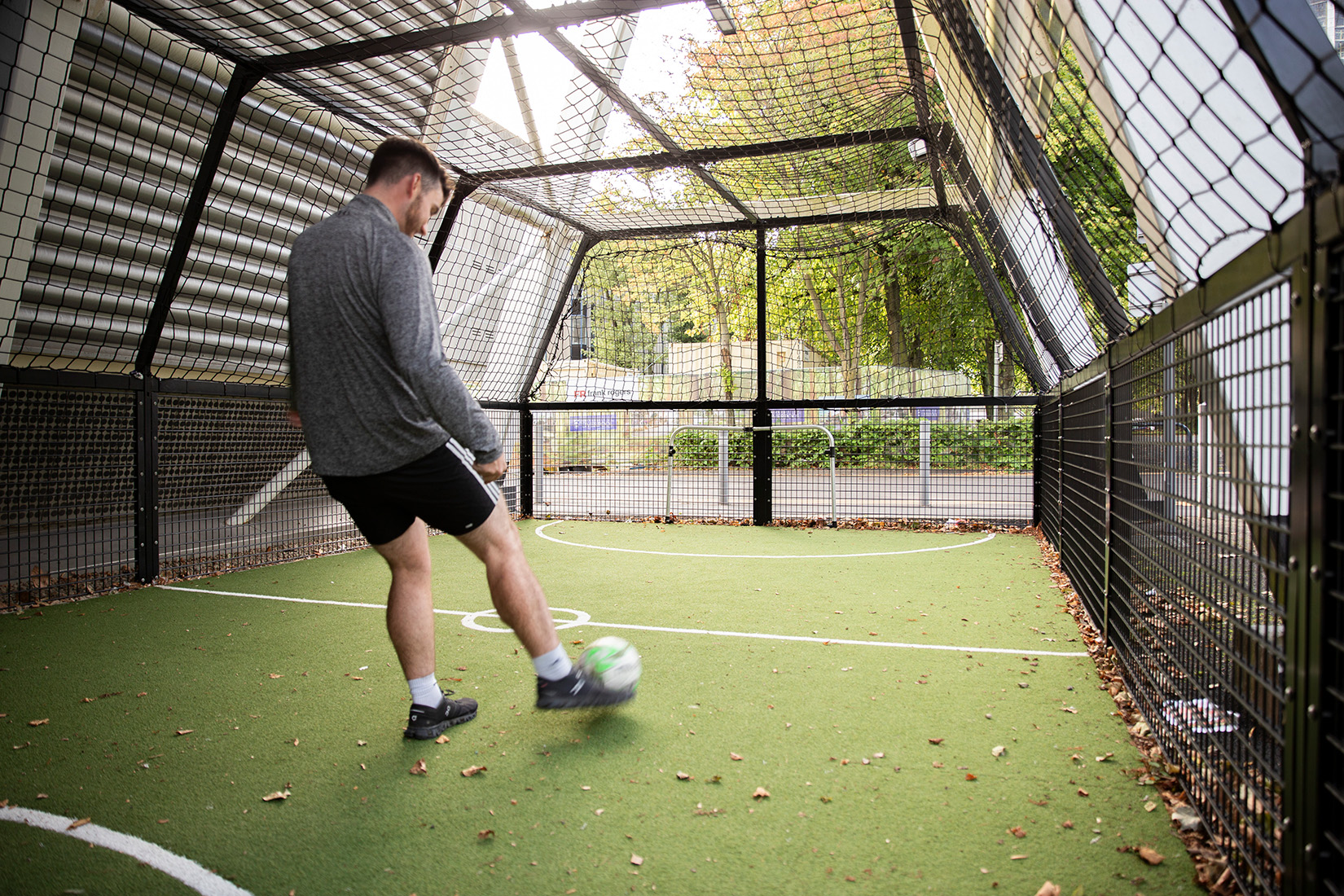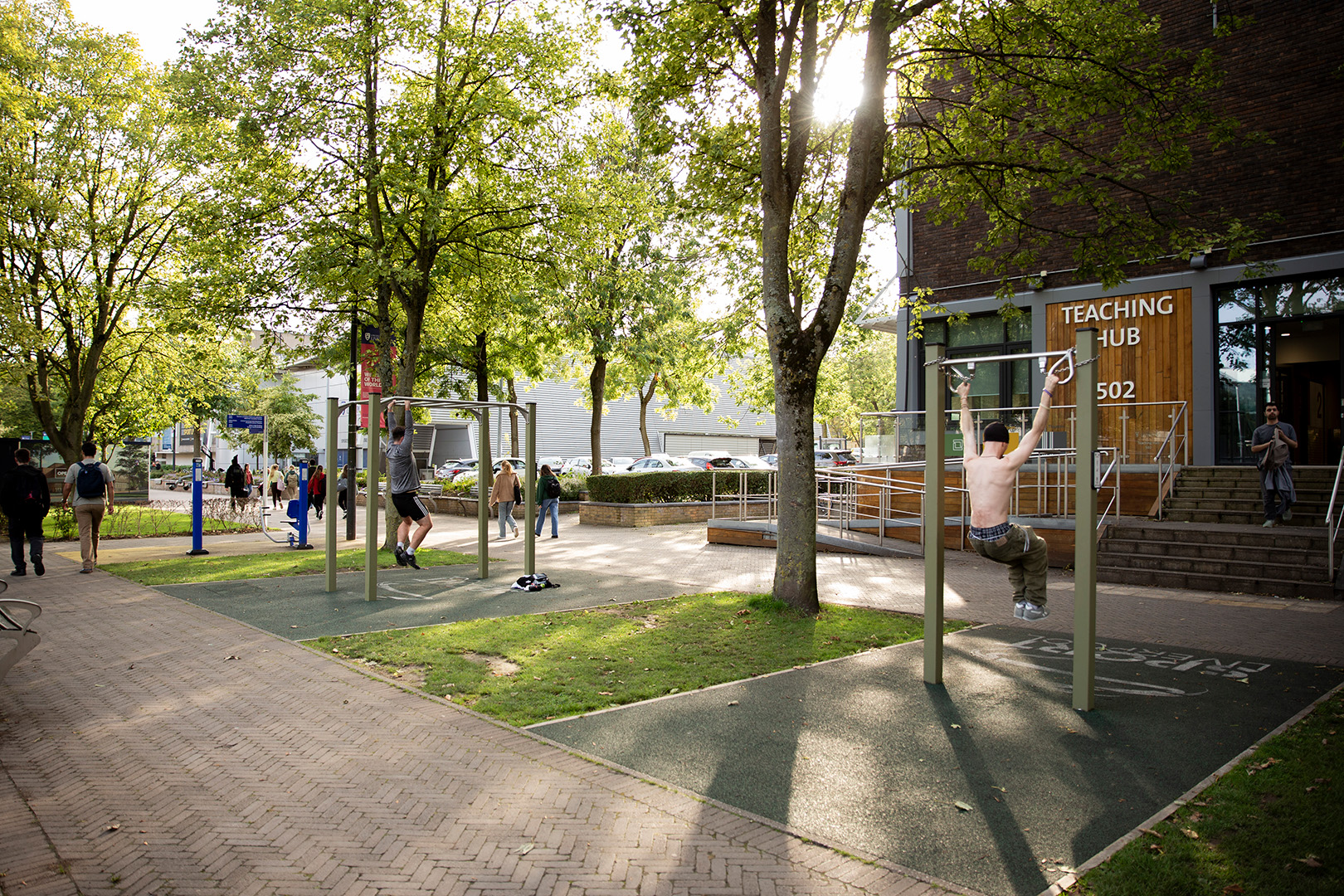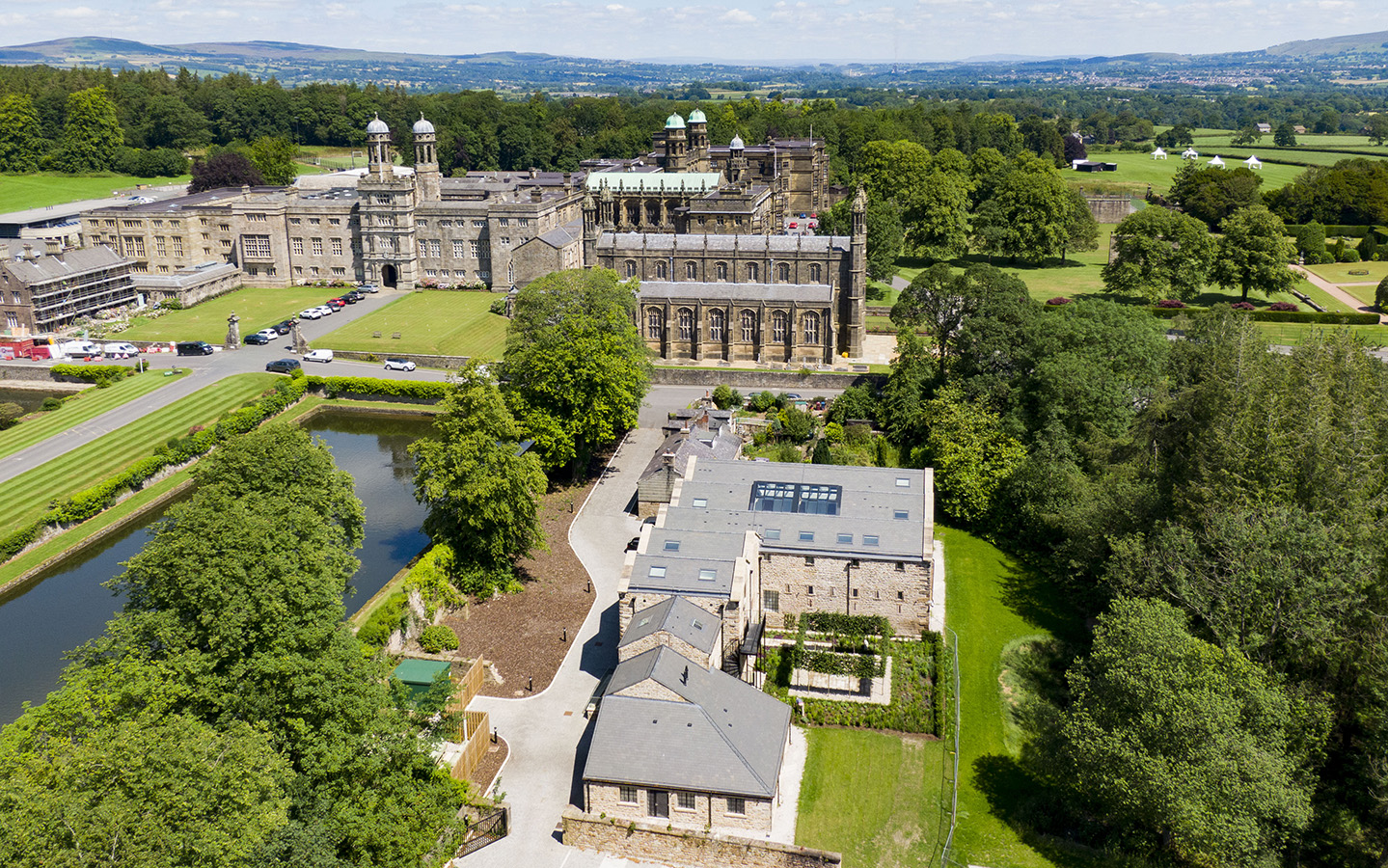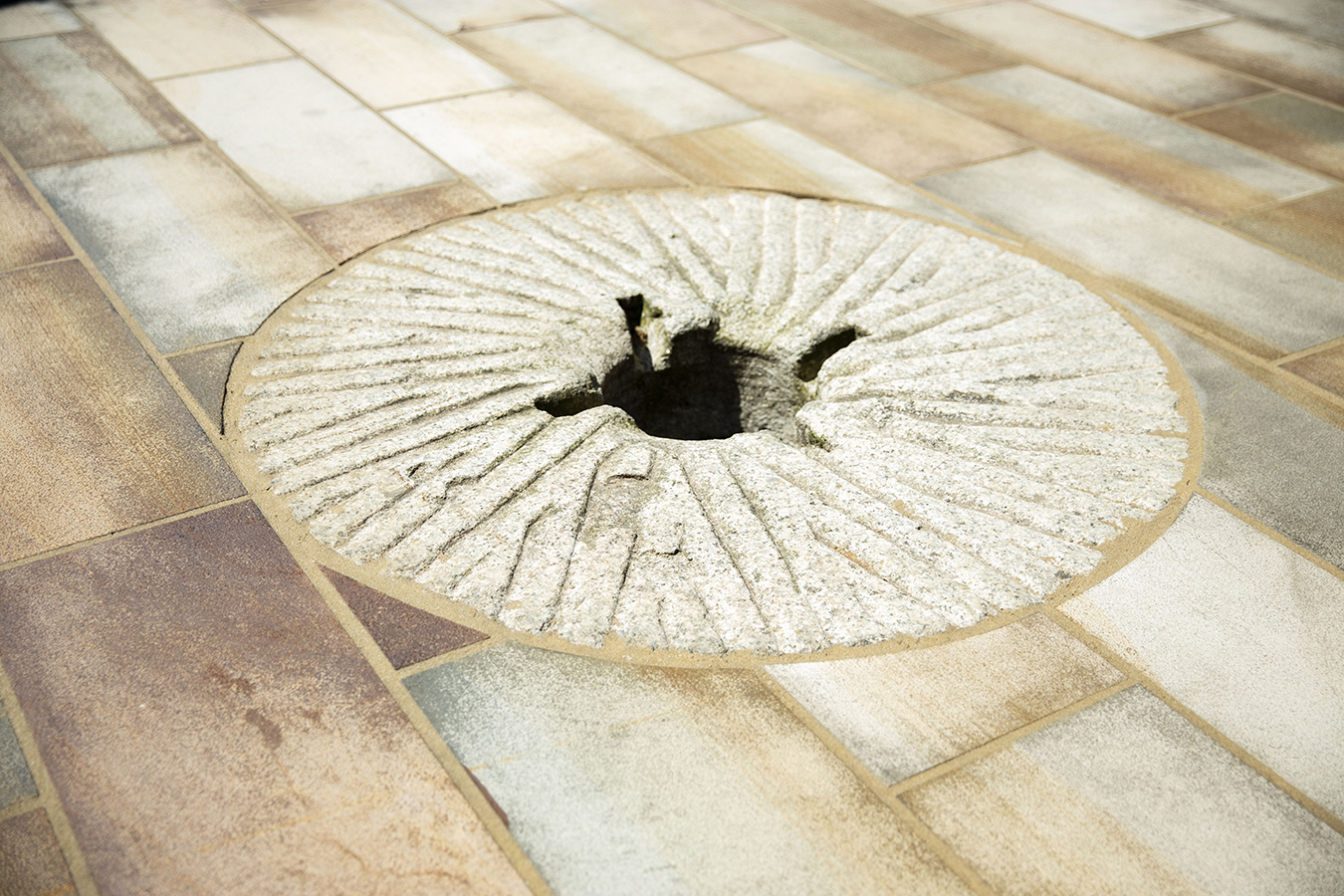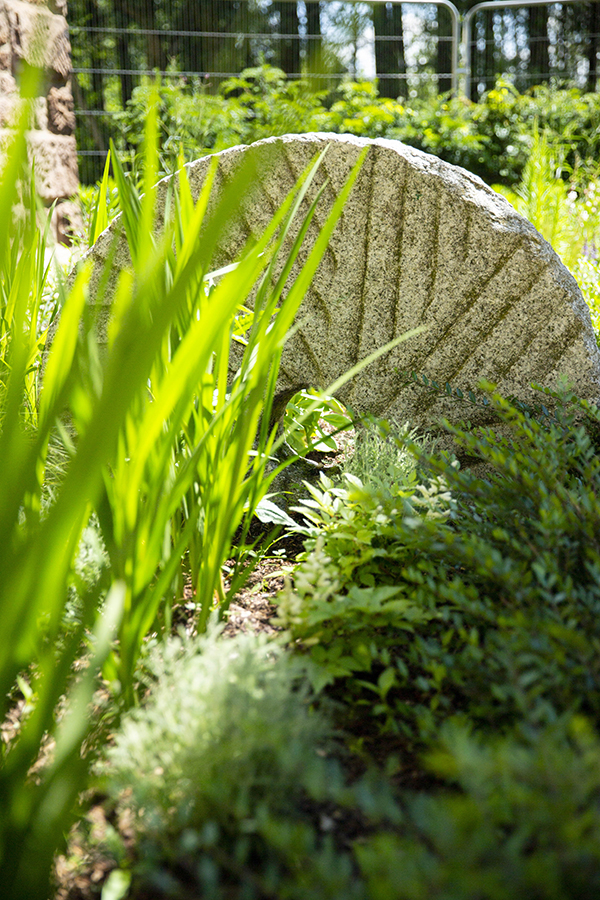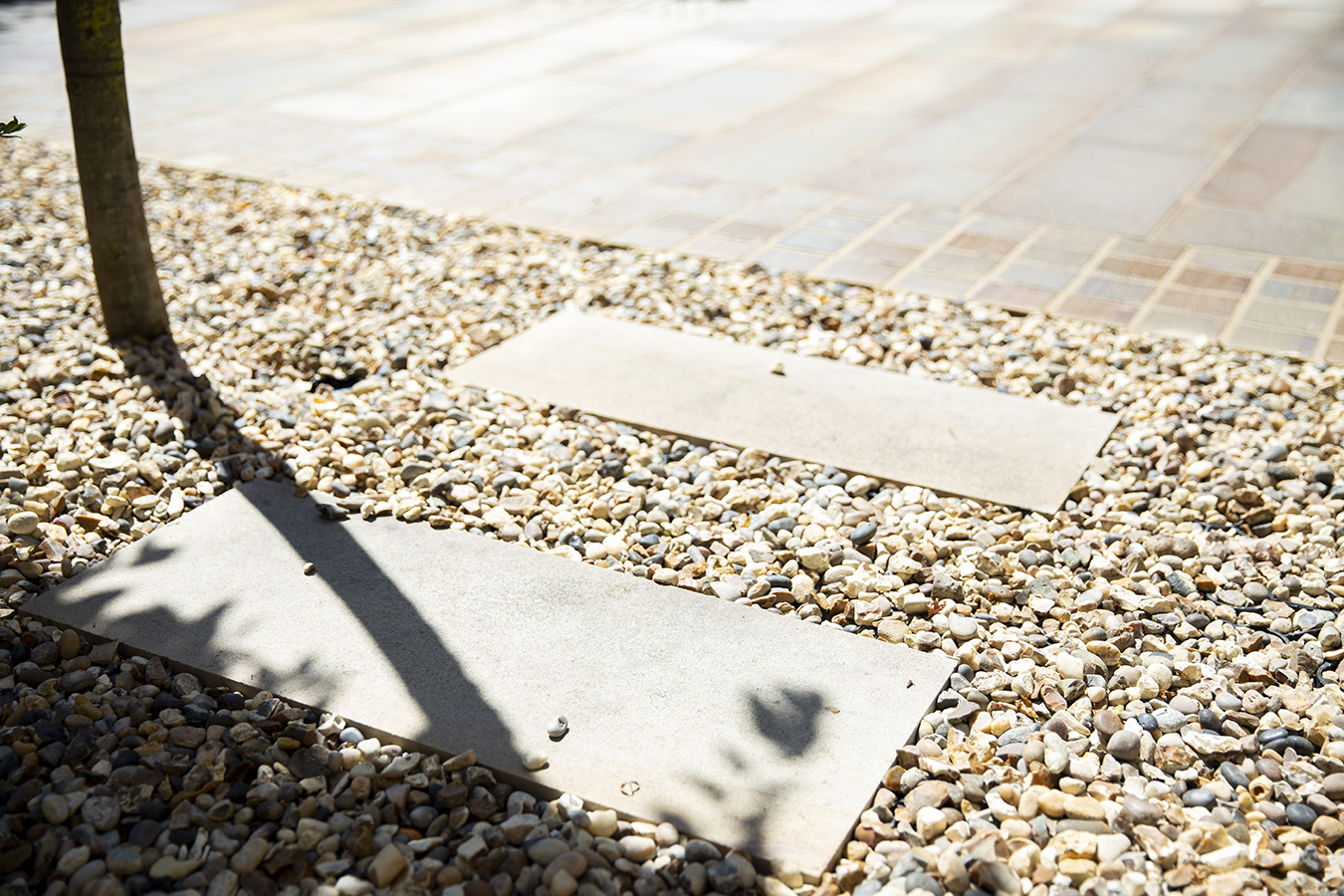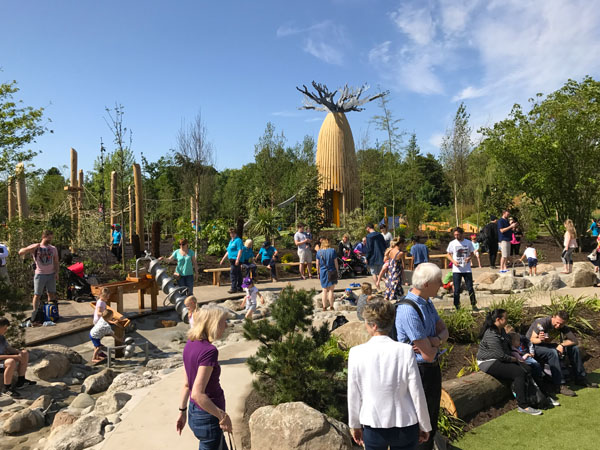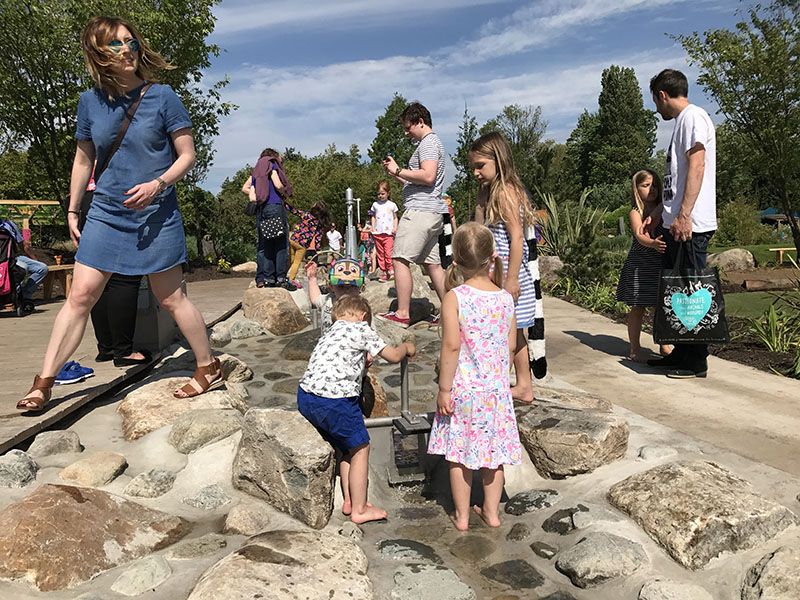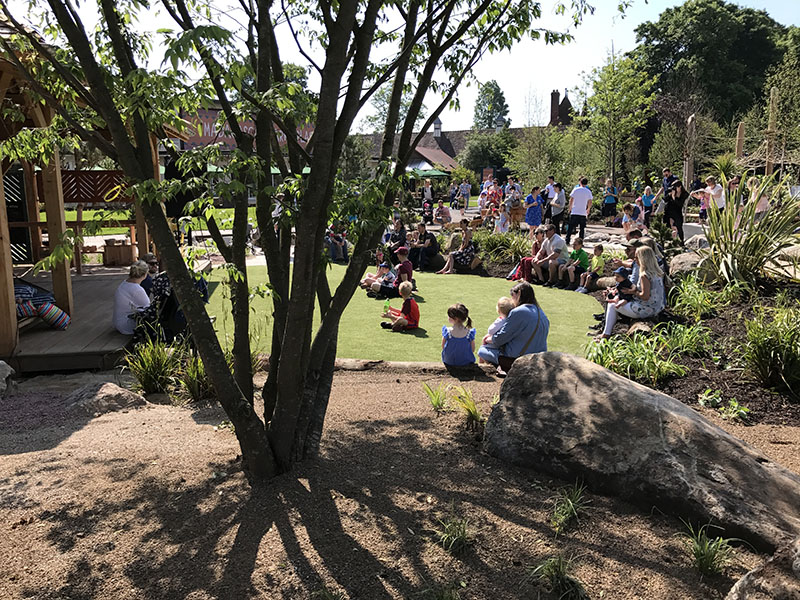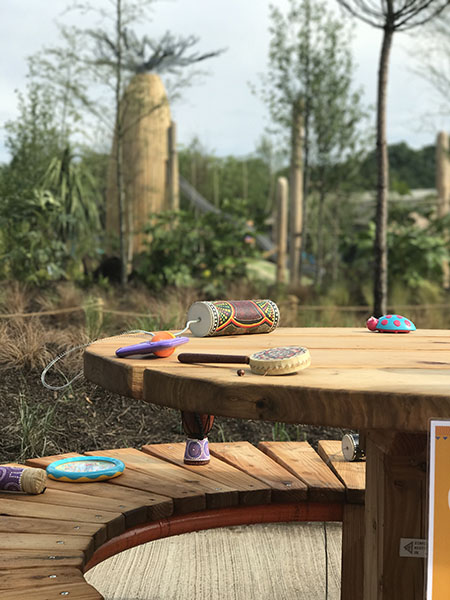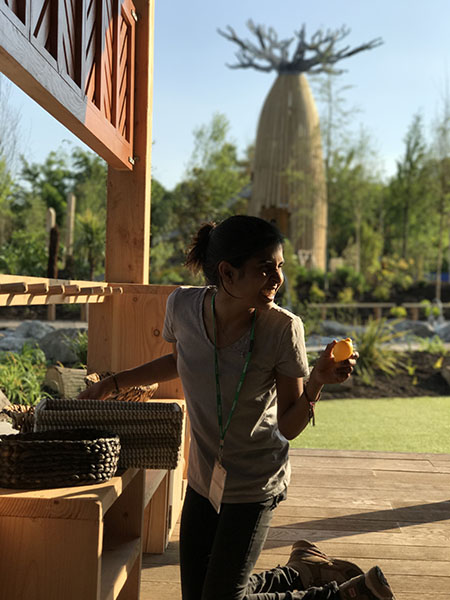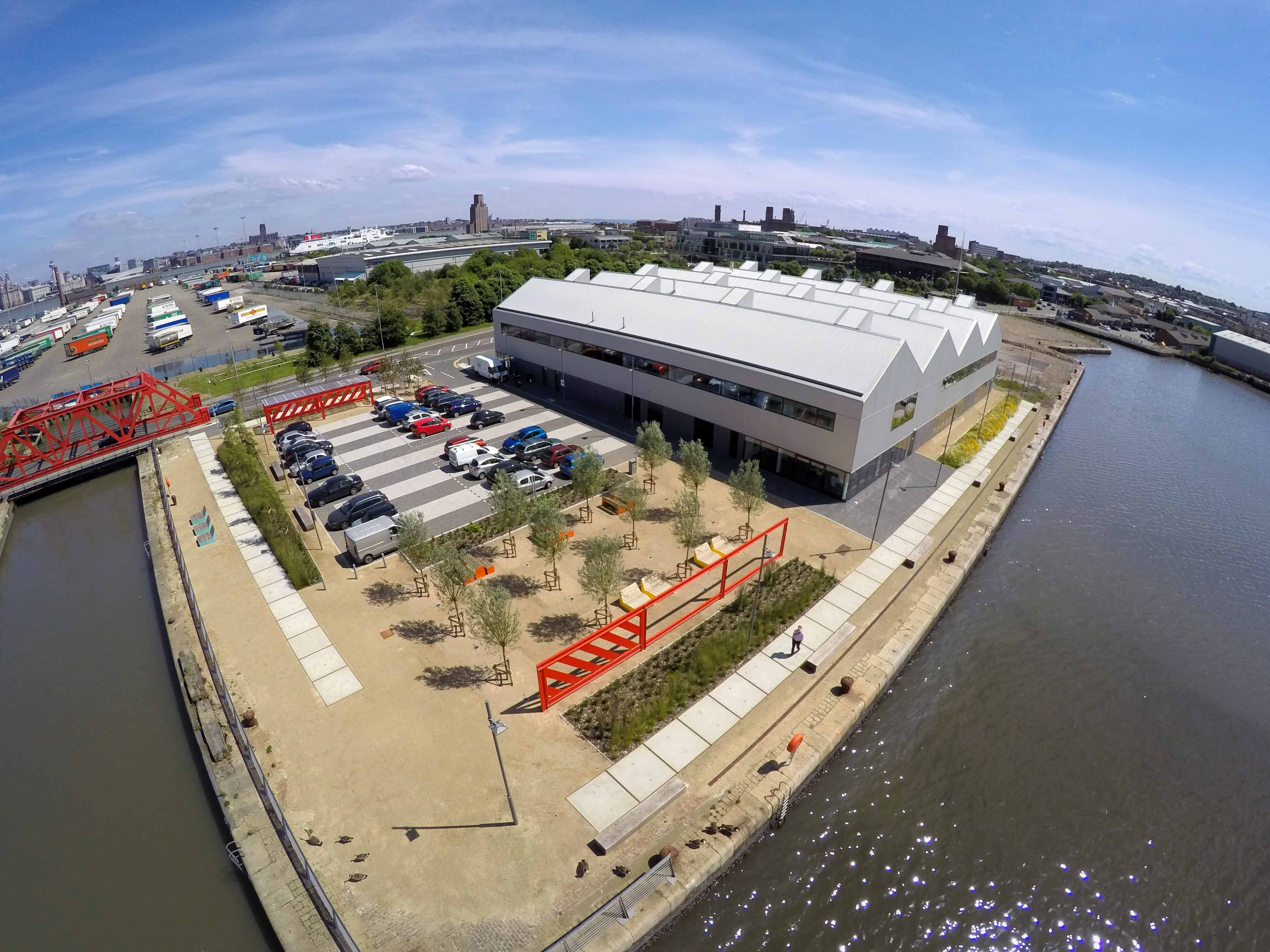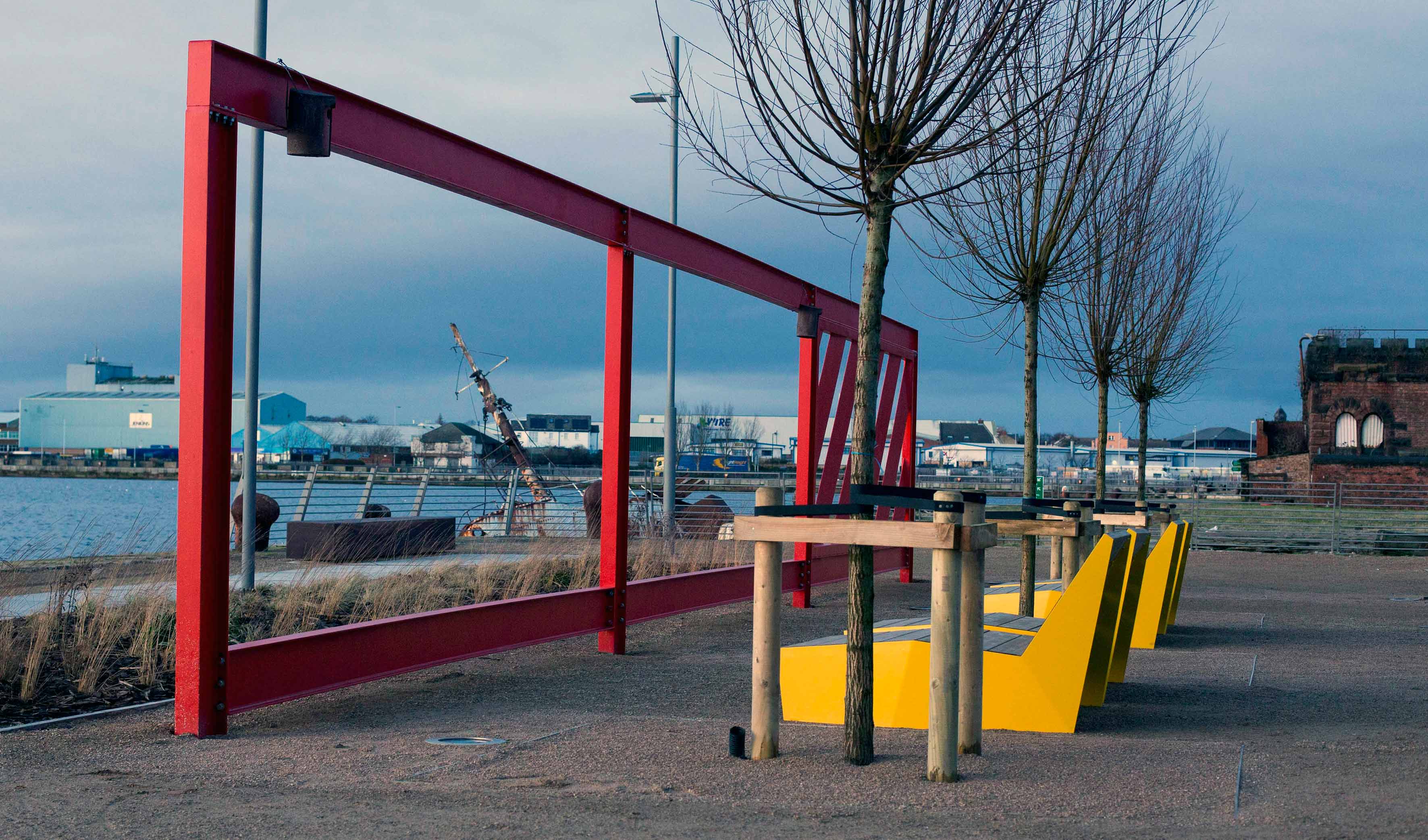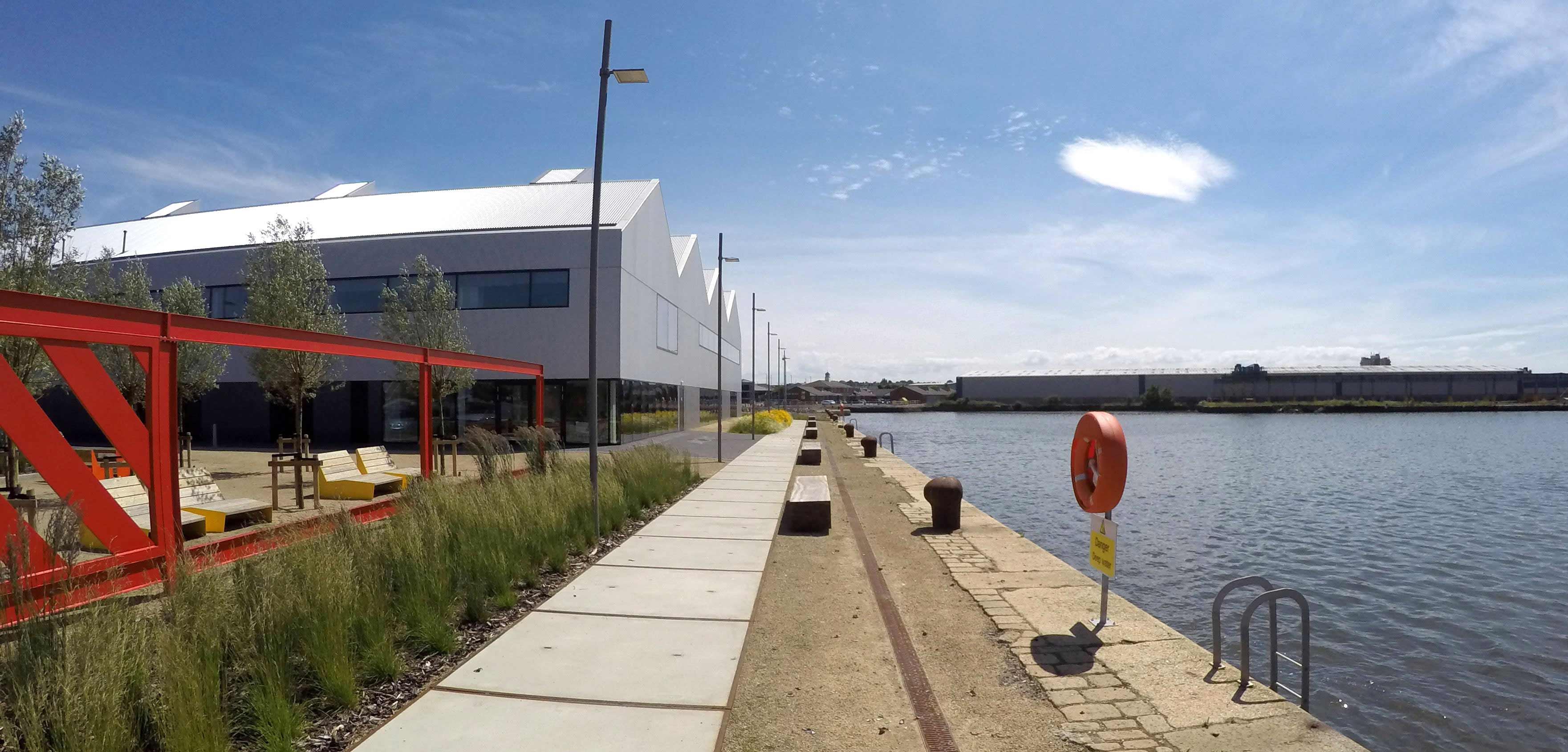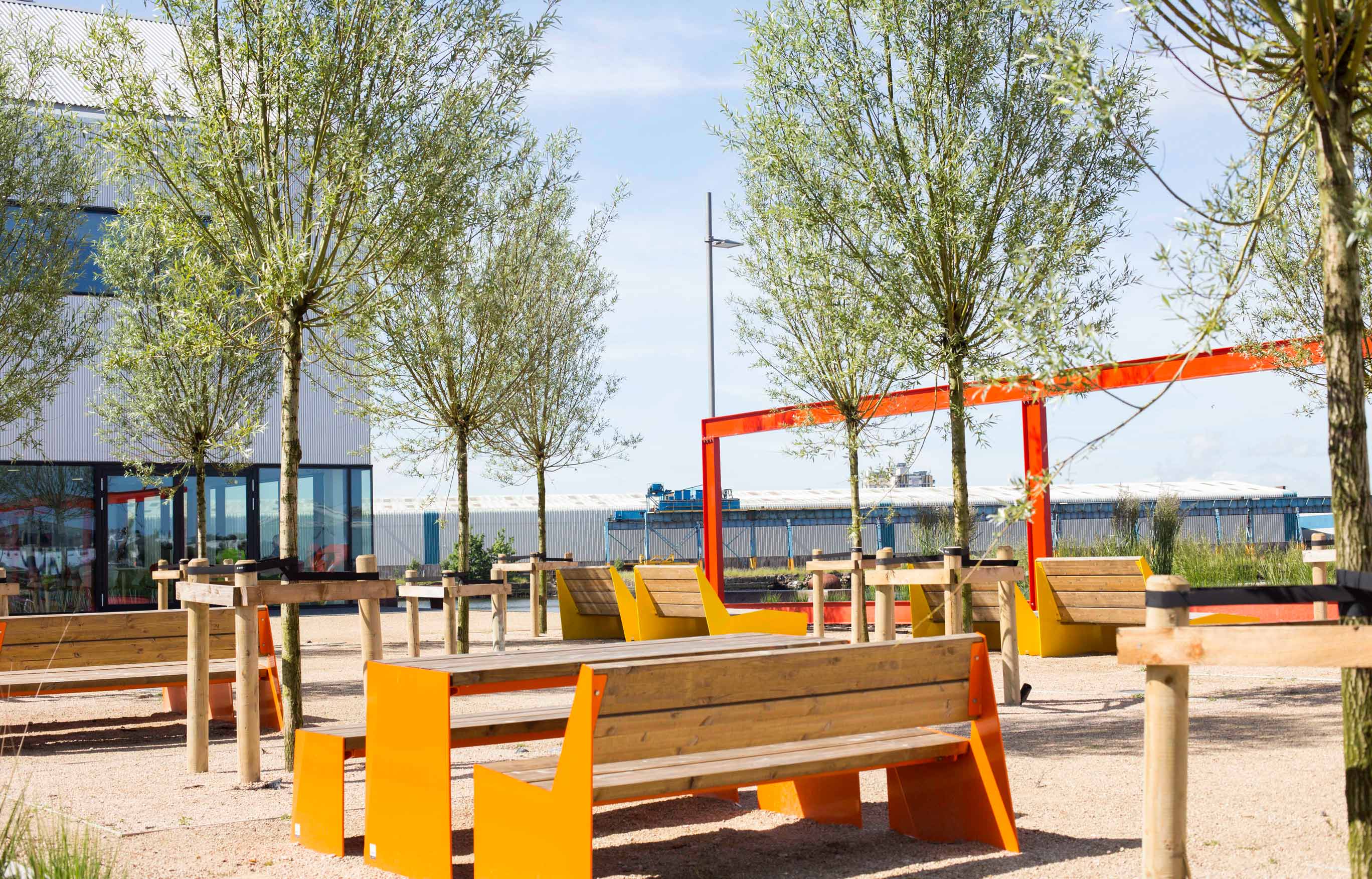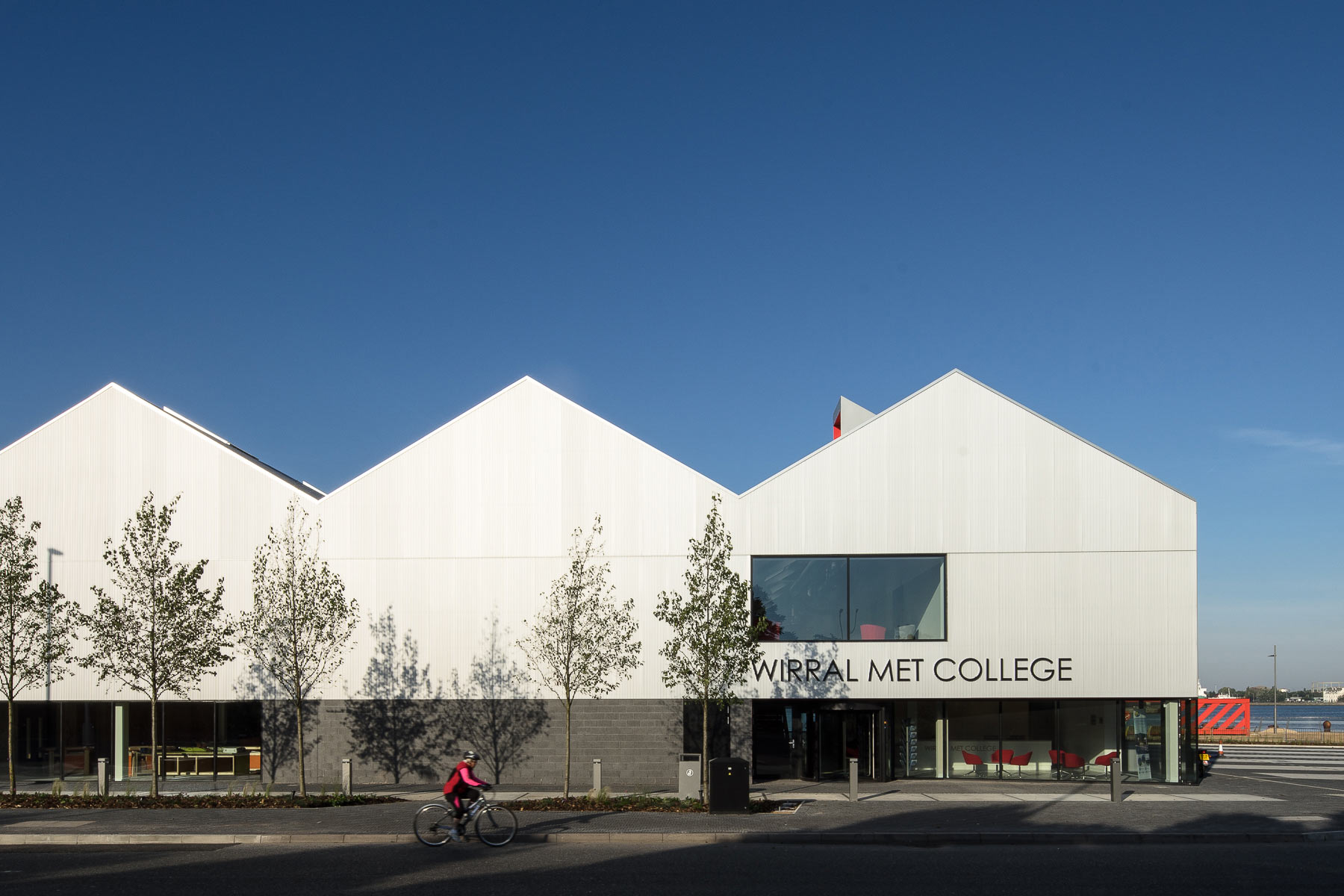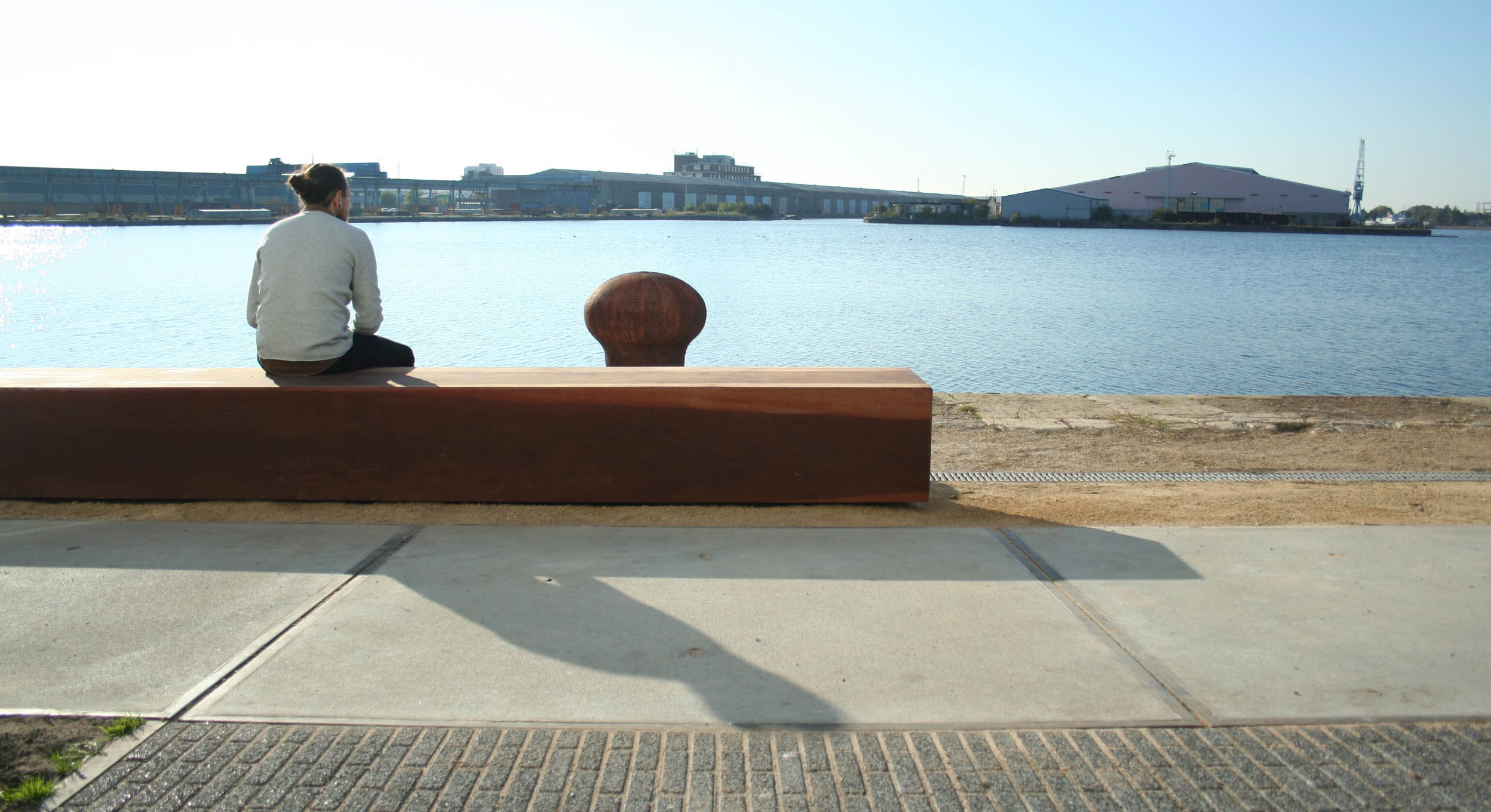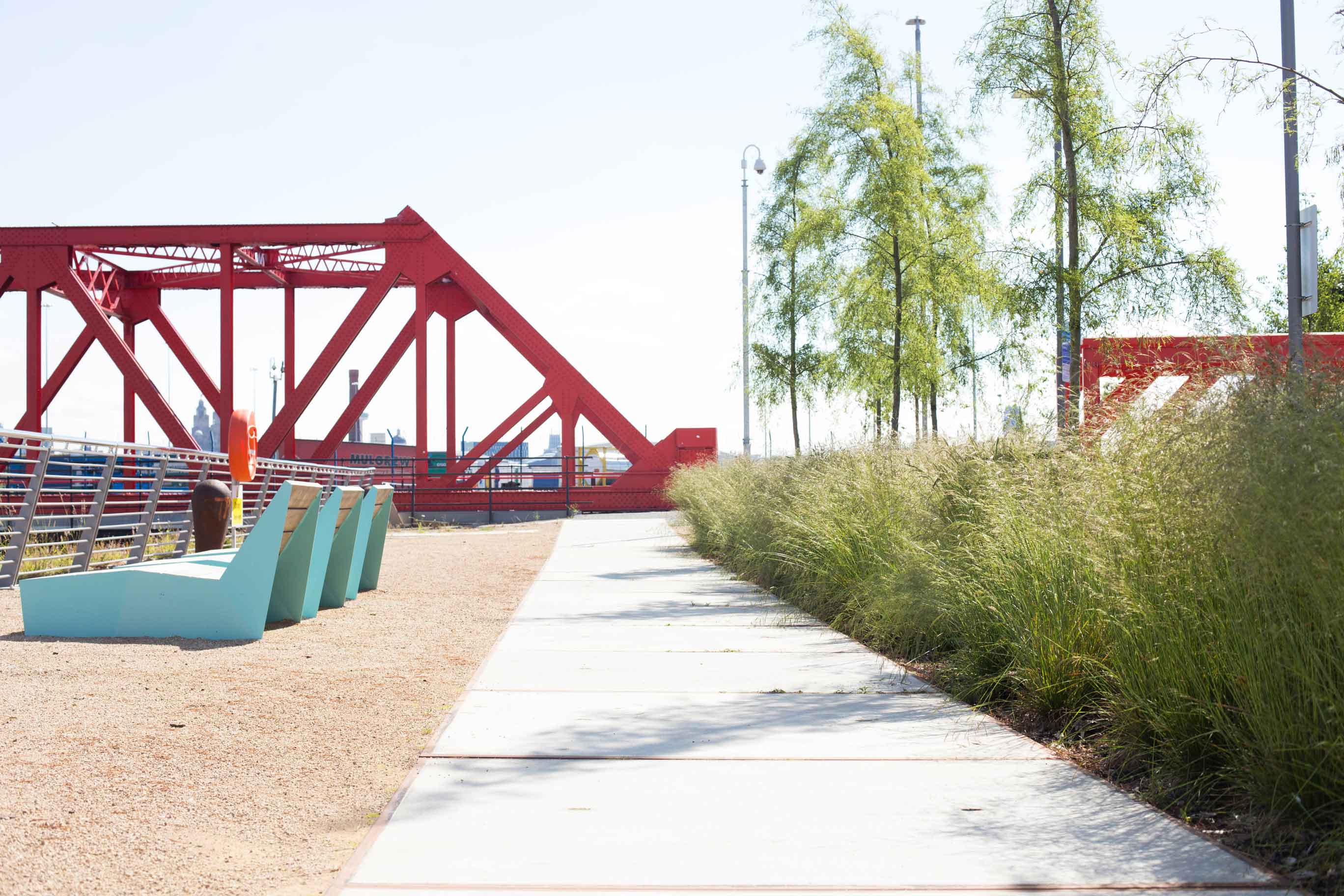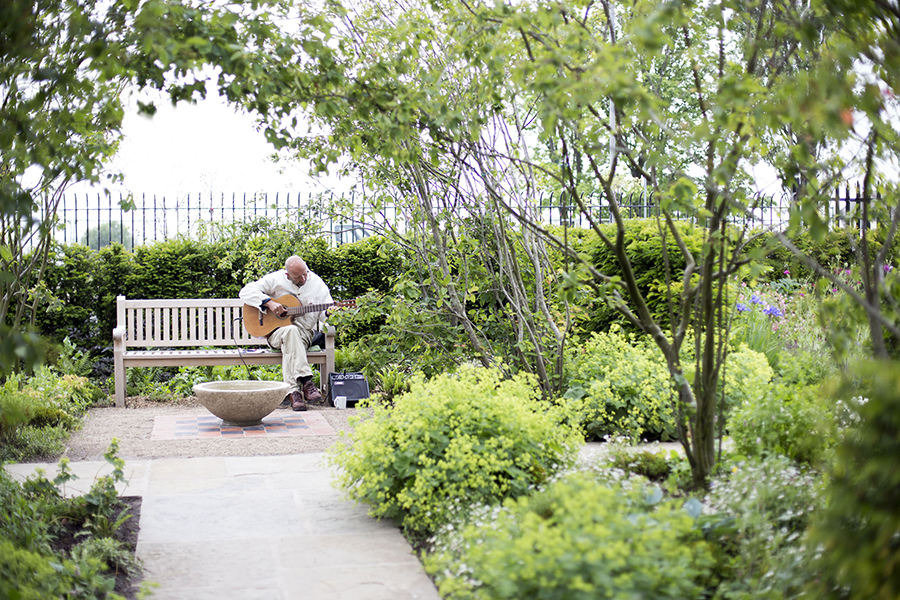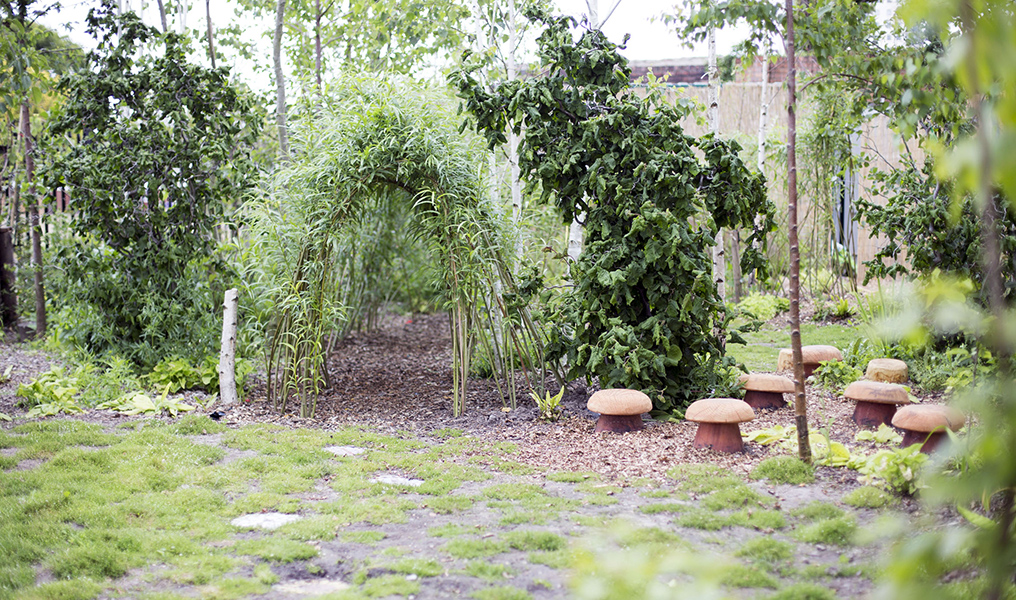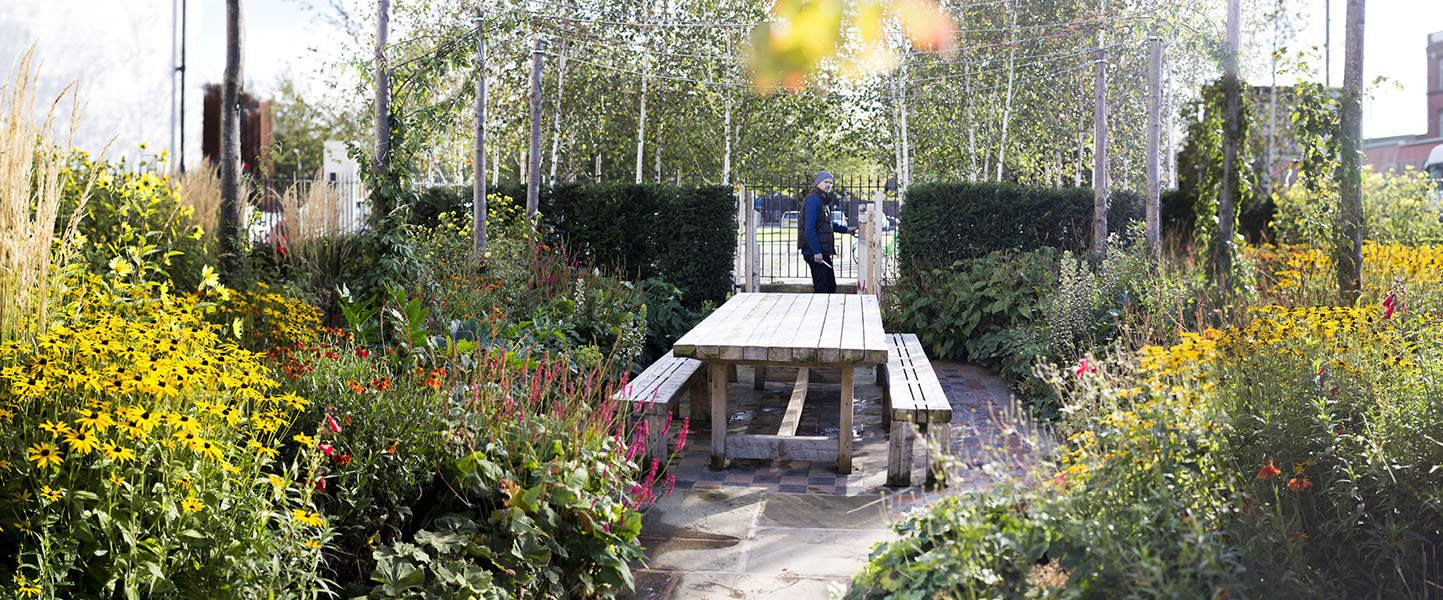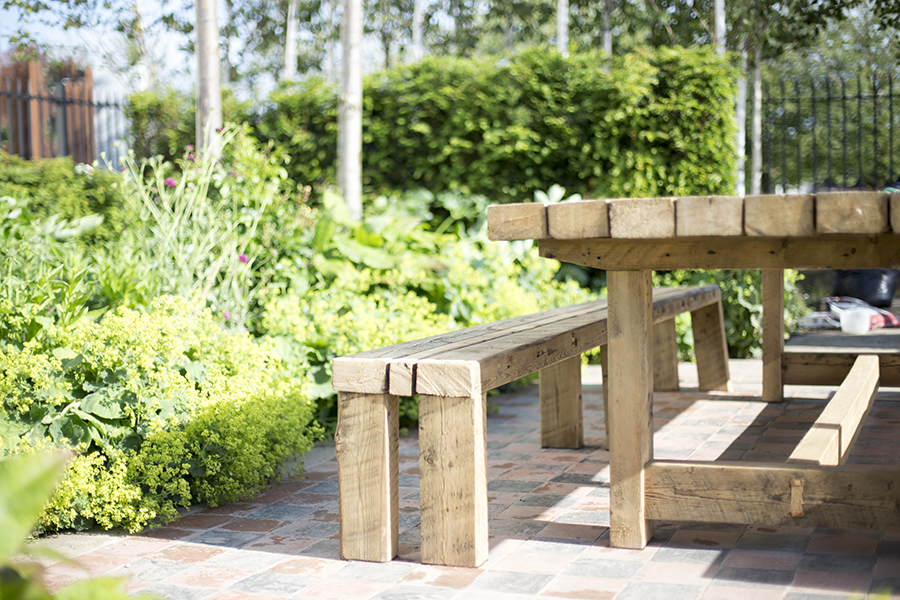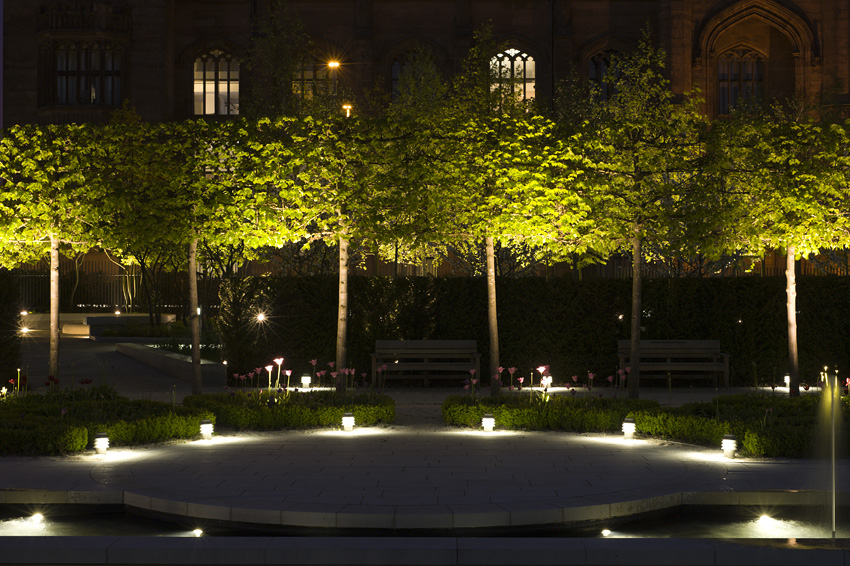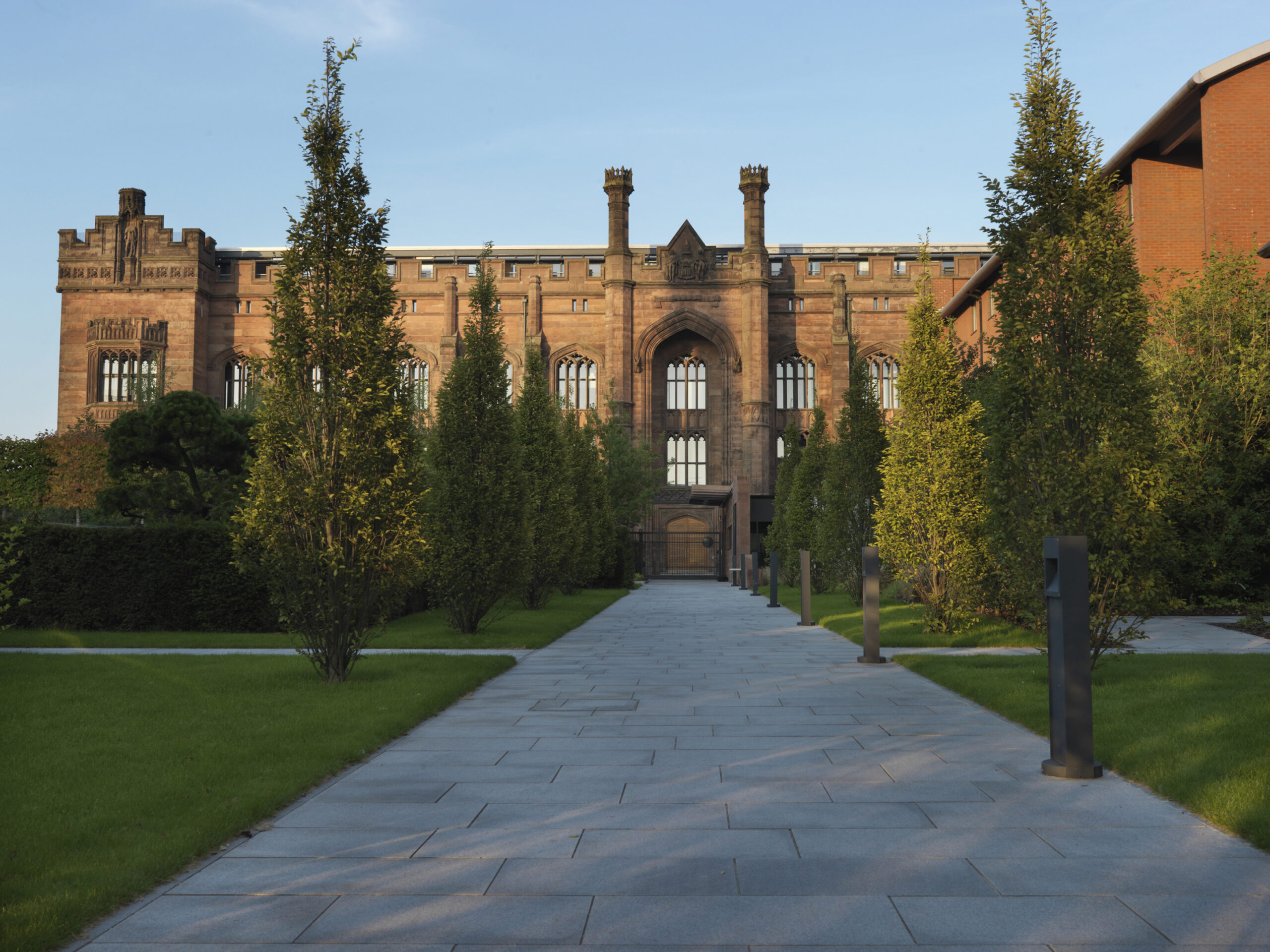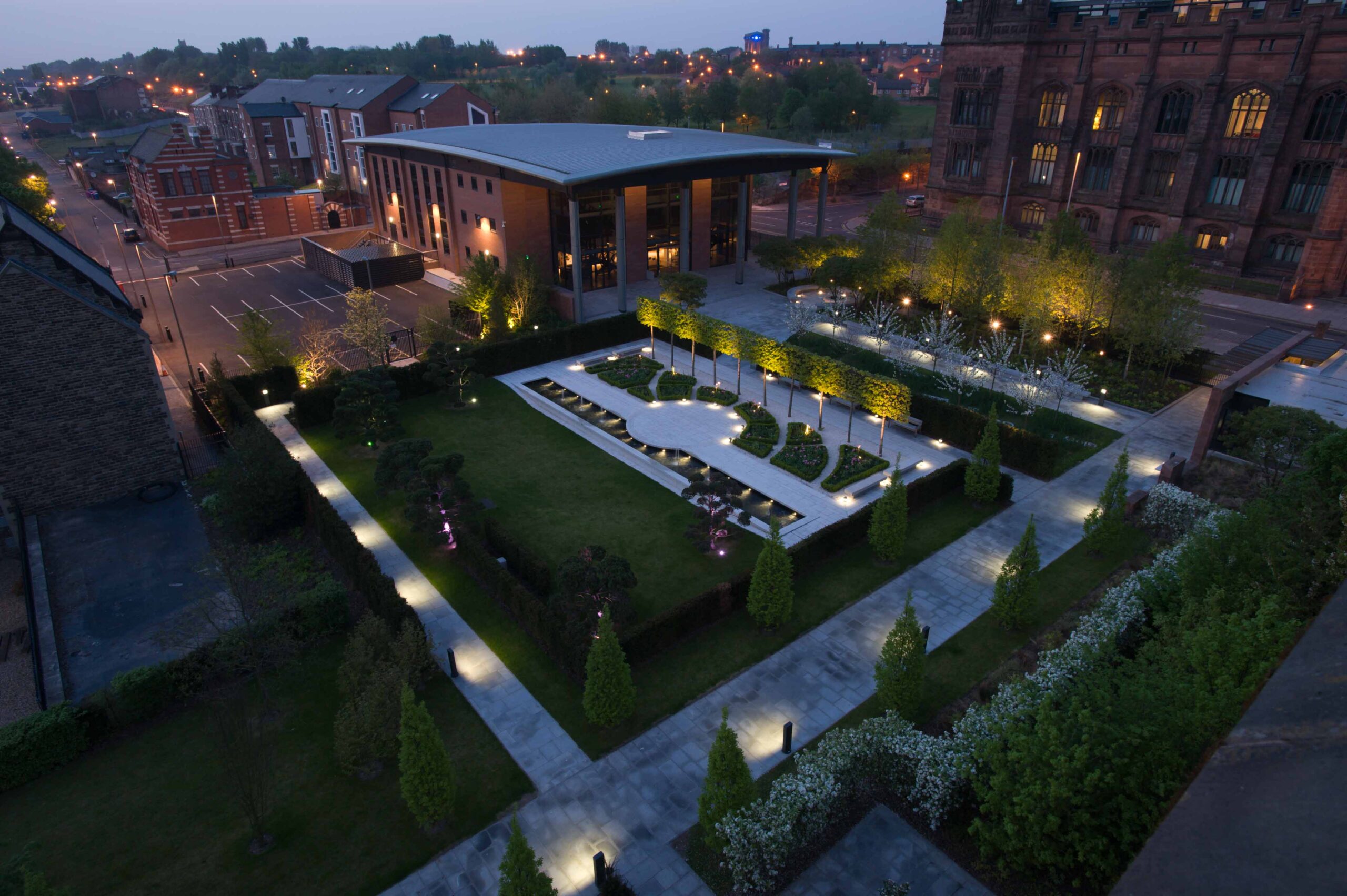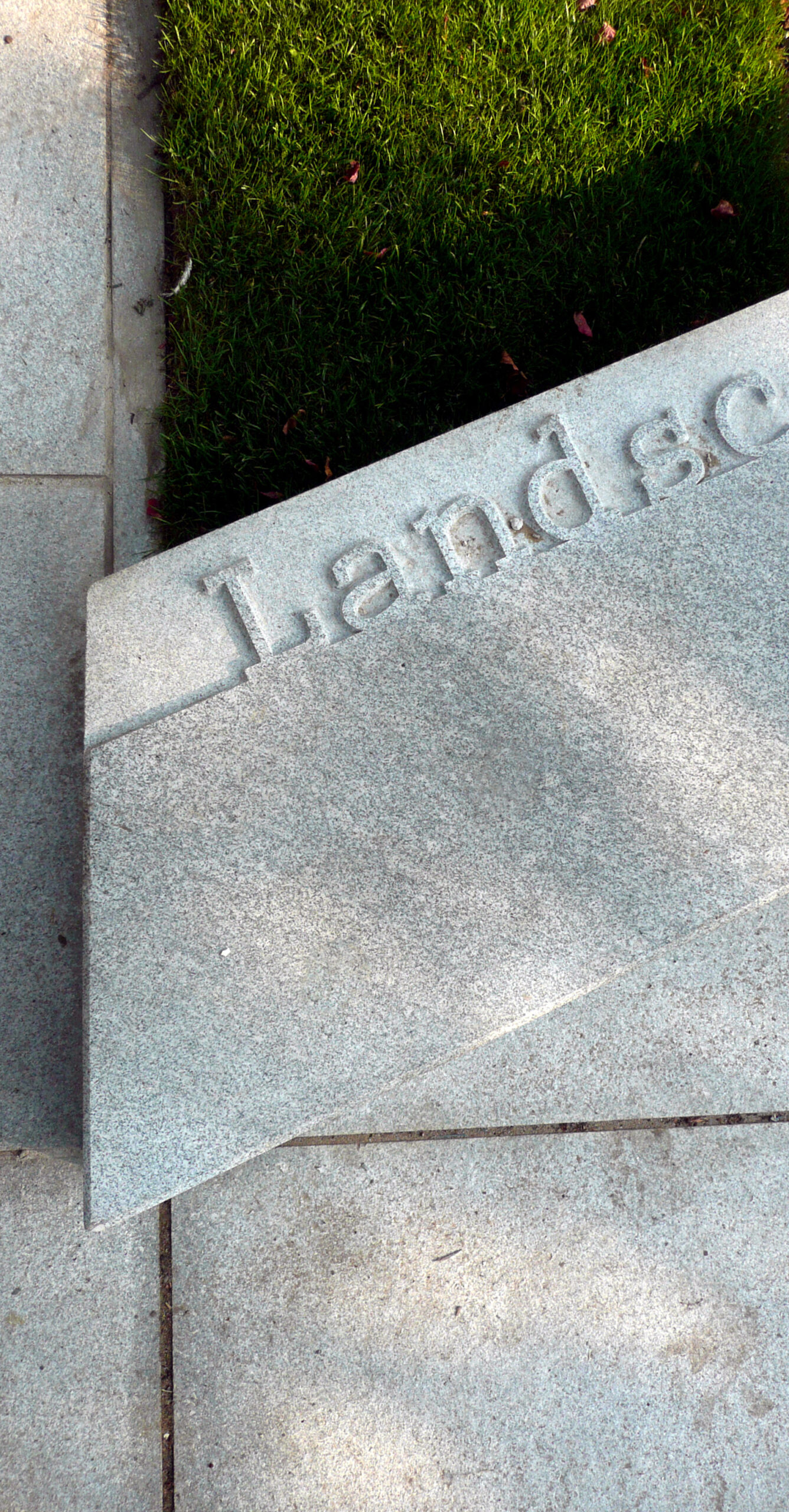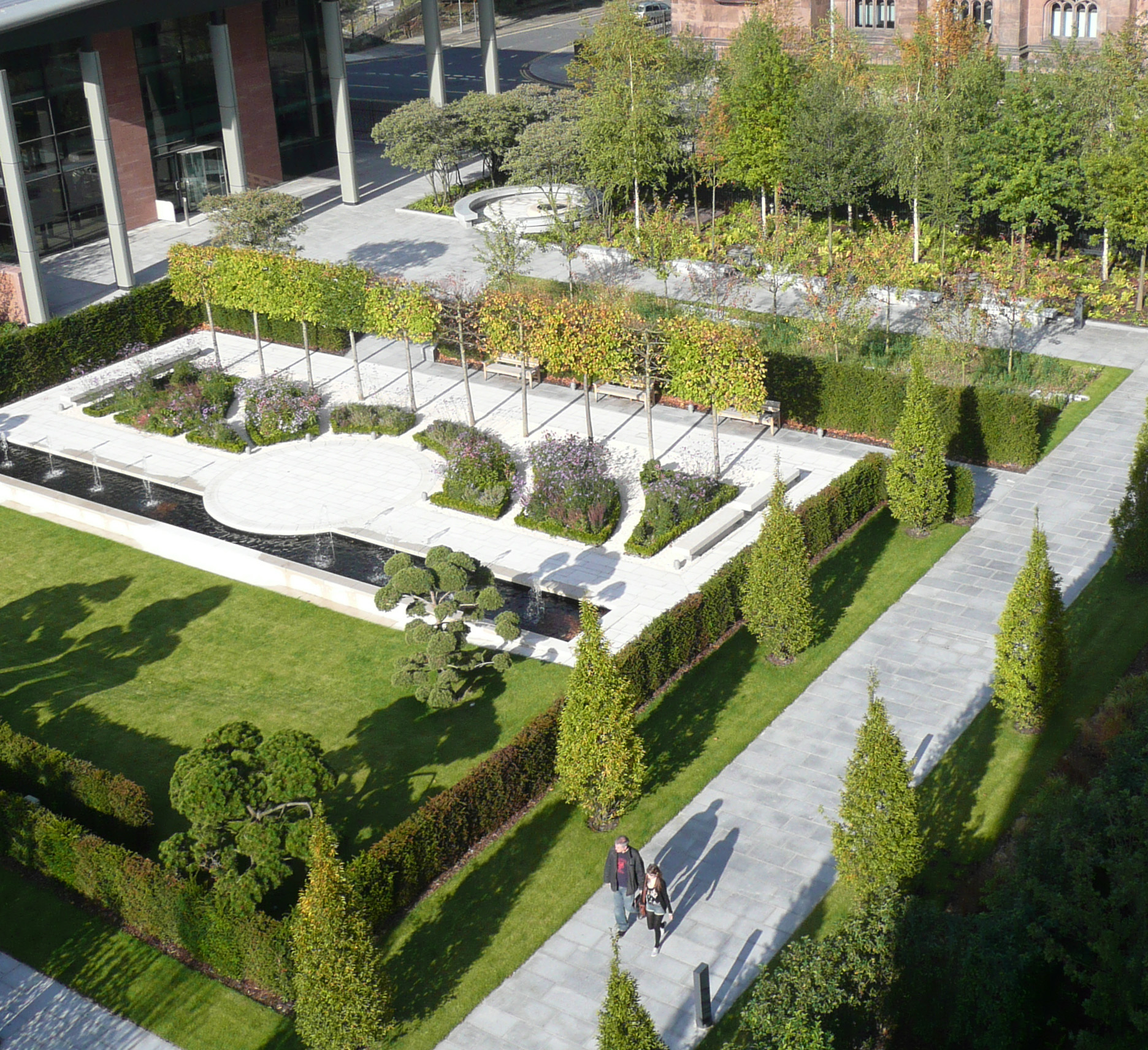Brett Gardens
Design Team: BCA Landscape, Ellis Williams Architects
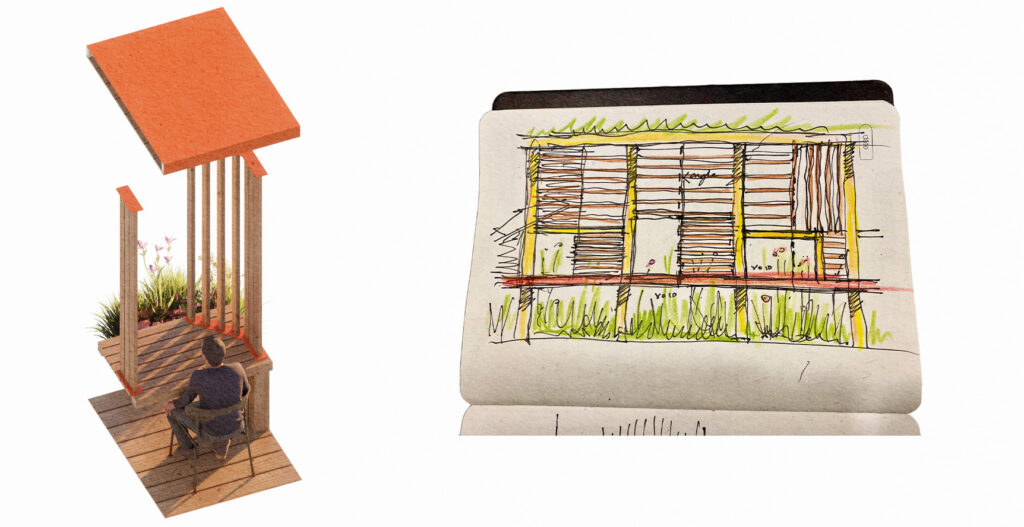
The Brett Study Garden has recently opened at the Liverpool University Campus and includes 44 enclosed study carrells, each with a window into a shared green space.
This is one of the many environmental and spatial improvements we are helping implement across the wider campus. While there are more images and details to come, we would like to start by sharing some of the process and thinking that informed this new secret study garden.
To get the ball rolling we asked ourselves the question – what actually makes a place conducive to the process of studying. Covid made us look again at how and where we work and study. It focused our minds and bodies on the need for fresh air and emphasised the importance of a connection with nearby nature and the outdoors. It made us realise that the enclosed environment of our homes and workplace aren’t always beneficial for our health or productivity.
With the exponential rise in distractions that our modern lives bring us, from social media notifications to a deluge of daily emails and back-to-back virtual meetings filling every hour, our need to find positive environments to work and study in becomes ever more vital.
So, what is it about a window with a green view that makes us feel better? Over the last few years we have been delving deeper into understanding the psychological and physiological mechanics behind this phenomenon. It’s a fascinating world that includes touch, sound and smell, and not just sight. It involves ergonomics and proxemics (are we comfortable?) and it tracks back thousands of years to see how we are still adapting as a species to the very recent arrival of Cities!
We have been using this fascinating research to develop our own understanding and in-turn inform our design for this amazing new Study Garden at Liverpool University’s Sydney Jones Library.
We plan to collect further user feedback over the coming months and years to help understand the effects of planting growth and seasonal changes on the various qualities of the Study Garden, including the impact of artificial light in the darkening afternoons of the Autumn term.
[Images: Day to night comparison – View of green space from Andy’s garden shed / home office]
